BCCI signs MoU with KIIT to set up Institute for training and research in law
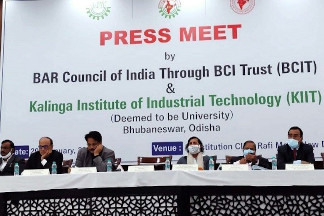
Education News EduLegaL www.edulegal.org mail@edulegal.in The Bar Council of India (BCI), has joined hands with KIIT Deemed University to establish the Indian Institute of Law in Bhubaneshwar, Odisha. This Institute will basically engage in skill upgradation of the law teaching faculty. Indian Institute of Law: This Institute shall act as Model Institute of Law Teachers' Academy, Continuous Legal Education and Research, to propel and encourage the teachers’ learning in the field of law. IIL is established with the intent to promote advanced legal education benefitting law professionals, teachers and advocates. It also aims at encouraging research and innovation in the legal sector. An effective training facility where young teachers and law professionals can enhance their skills shall be the area of focus. It further aims to uphold legal research and advanced studies in law to meet the socio-economic and needs of people. It is anticipated that the National Law School and other universities, governmental bodies, NGOs’ and Bar Associations of States will collaborate in the advancement of the objective to assist and promote legal framework. There will be four major programmes introduced in the infrastructure. They include: Professional Skill Development programme,Continuing Legal Education, Courses for learning Alternative Dispute Resolution (ADR) methods through mediation and conciliation. The IIL will further comprise of five departments in the initial stage, which include: Academic Staff College (ASC),IIL Training Centre (IIL-TC),School of Continuing Education (SCE),Centre for Legal Aid (CLA)Bridge Courses for Foreign Degree Holders The Council has taken the initiative to execute the programmes for the initial three years. Books, periodical digests and research papers, both in hardcopy and soft copy, will be published for the benefit of teachers, advocates and academicians for continuing legal education. Full-time teachers, guides and guest lecturers are expected to be renowned jurists, formers judges of the Supreme Court or the High Court and Advocates of the Bar and noted Law Teachers from National Law Universities (NLUs). The seminars, training programmes and symposiums conducted will be presided by Hon'ble judges, law deans and members of the Bar from countries across the world. EduLegaL View: This initiative if implemented properly will widen the horizons and open up an array of opportunities offering a national platform to the young legal professions to learn and gain advanced skills from the prominent legal luminaries from India and abroad. It will greatly aid in the dispensation of law and justice. The research is unquestionably aid in the advancement of legal studies in India. Having said this BCI also should seriously re-consider its recent controversial decision to scrap 1 year LLM, when 1 year LLM is practice generally all over the world. There is no sound reason to withdraw 1 LLM. It is not supported by any data or study. Ritesh Samartha Research Intern EduLegaL
Bombay HC: Create Additional Seat for Meritorious MBBS Applicant
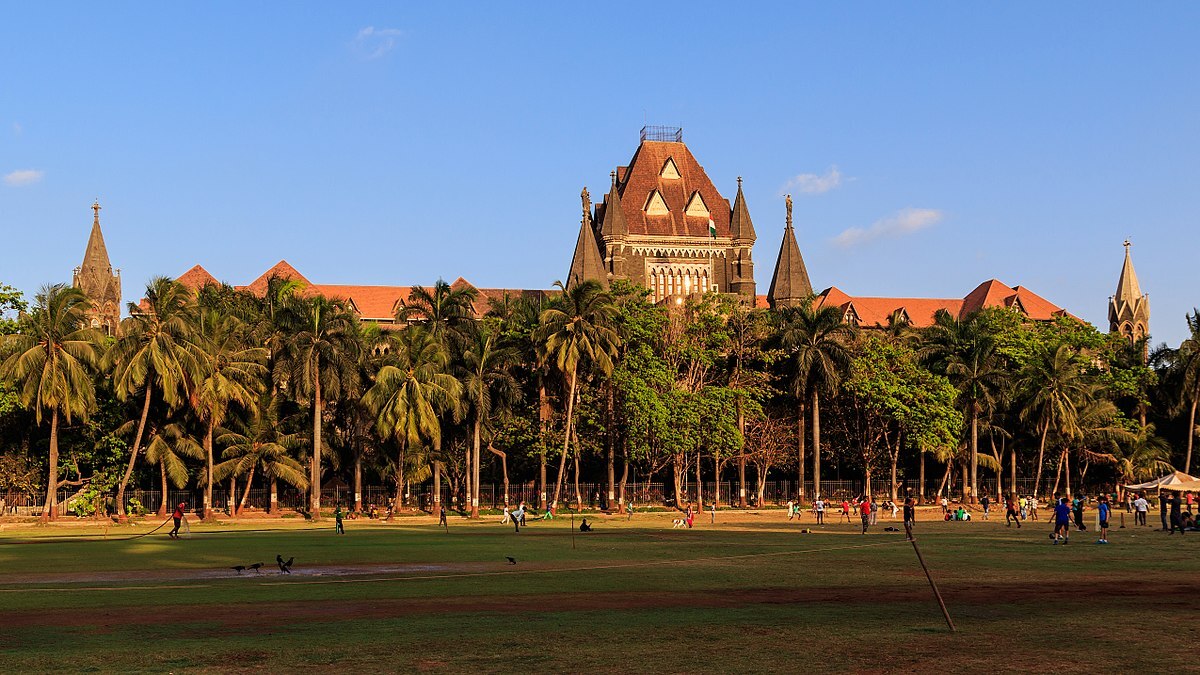
Education News EduLegaL www.edulegal.org mail@edulegal.in 27 th February 2021, the Bombay High Court in Annu Pyarelal Sinsinwar v. Union Territory of Dadra and Nagar Haveli and Daman and Diu and Ors., — Writ Petition No.419 of 2021— issuing a judgment in favour of the meritorious petitioner-student, directed the respondents to create an additional seat in the medical college and admit her for the MBBS Course. The court while allowing the writ petition, commented:“Although the Courts do not sit in appeal over decisions of academic bodies, it is not the law that such decisions are immune from judicial review. The acknowledged parameters of judicial review permit examination of the decision-making process if the resultant decision is against the Constitutional mandate or unreasonable or arbitrary or perverse. The drowsy default of the executive to acknowledge merit and give it due recognition has to be frowned upon, on facts and in the circumstances.”The petitioner, domicile of the Union Territory of Dadra and Nagar Haveli, filed a plea in the Bombay High Court, seeking relief in a matter concerning admission to the sole medical college within the said UT. Aggrieved by the fact that although being a meritorious student with a score of 559 in the NEET 2020 Examination with a percentile of 96.8%, she was not allotted a seat and provisional allocation of seats were made to those according to the “priority list” as mentioned in the admission brochure issued by Union Territories Administration of Dadra and Nagar Haveli and Daman and Diu, titled — “Admission Prospectus 2020-2021.” The petitioner contended that she satisfied the admission criteria except Clause 4(a) that provided for priority admissions. She asserted that although she did not fall in the first category she certainly was eligible for the second priority provided that the seats were available after the first priority candidate’s seats were exhausted. When the admission process for the university began the petitioner participated in it and stood at serial number one in the provisional merit list of Dadra and Nagar Haveli in the Priority II list. Although the petitioner belonged to the OBC category the respondent failed to provide category merit to the petitioner. The petitioner, therefore, stated that the court hold illegal the provisional allocation of seats on which the priority criteria under clause 4(a) applied to the four seats from the All India Quota and to quash it. She also sought relief and demanded that the court direct the respondents to grant admission to her on the basis of her merit. The contentions raised on behalf of the petitioner were on the basis of the “Regulations on Graduate Medical Education, 1997” of the Medical Council of India in Regulation 5(5) which provides for selection of students to Medical Colleges based on merit, and the criteria to be adopted for determination of such merit. She has asserted that there was no indication in the rules that the seats That remained vacant in the All India Quota which reverted to the state were to be treated as deemed state quota seats so that the said vacant seats could be filled up not on the basis of merits of the performance in the NEET examination but by selecting the other non-meritorious candidates on the first priority according to clause 4(a). The Court after careful examination of the facts agreed that the issue under consideration waswhether the regular criteria for making admissions to the State quota, namely, to the 85% seats, could at all be applied, in the present circumstances, to fill up the 4 seats reverted from the All India Quota and not the criteria of pure merit of the candidates, who would be available for admission.The court studying the eligibility criteria as laid down in Clause 3 and 4 of the brochure opined,“In our opinion, such approach of respondent no.4 to adopt Clause 4, namely, the 'Priorities criteria' to the seats reverted from All India Quota, would not satisfy the test of law and would amount to an arbitrary action on the part of the official respondents for more than one reason. In adopting such approach, respondent no. 4 has failed to take into consideration that the reverted 4 seats fell outside the 85% State quota, as in respect of such State quota all permissible norms of reservation, including the applicability of priority in Clause 4 were made applicable.”The court also expressed:“In these peculiar circumstances, there was no scope for any arbitrary discretion to deviate from the rule that merit of the eligible candidate should be the only criteria. This position is well recognised in law to which we immediately advert.”The court then went on to point out the "Regulations on Graduate Medical Education, 1997" as amended up to May, 2018, the Regulation 5(5) of which reads as,"(V).All admissions to MBBS course within the respective categories shall be based solely on marks obtained in the National Eligibility cum-Entrance Test.”In response to this, the court said,“We are thus of the clear opinion that by the approach as adopted by the respondent no.4, the claim of a meritorious candidate like the petitioner is arbitrarily overlooked by admitting less meritorious candidates. In the absence of rules, the merit of the petitioner could not have been sacrificed.”The court while allowing the petition said:“A sequel to our discussion is that the principles of fairness, non-discrimination and non-arbitrariness and above all merit of the petitioner in the admission process needs to be recognized and given due weightage.”In conclusion of the judgment, the court ordered no costs to the petition and directed:lRespondent no.1 to 4 are directed to forthwith admit the petitioner to the First Year MBBS Course for the academic year 2020-2021, on one of the 4 reverted seats from the 15% All India Quota.lRespondent No 1 to 4 are directed to take immediate steps to create one additional seat so that the admission of respondent no.8, who has secured the lowest marks in the NEET-2020 (414 marks) and being the lowest in merit stands protected in the light of the principles as laid down by the Supreme Court in S.Krishna Sardha vs. The State of Andhra Pradesh(supra).lAdmission of the respondent No.8 shall be treated as provisional till such time the additional seat is created.
Private Educational Institution exempted from paying Electricity Duty on the consumed Energy: HC
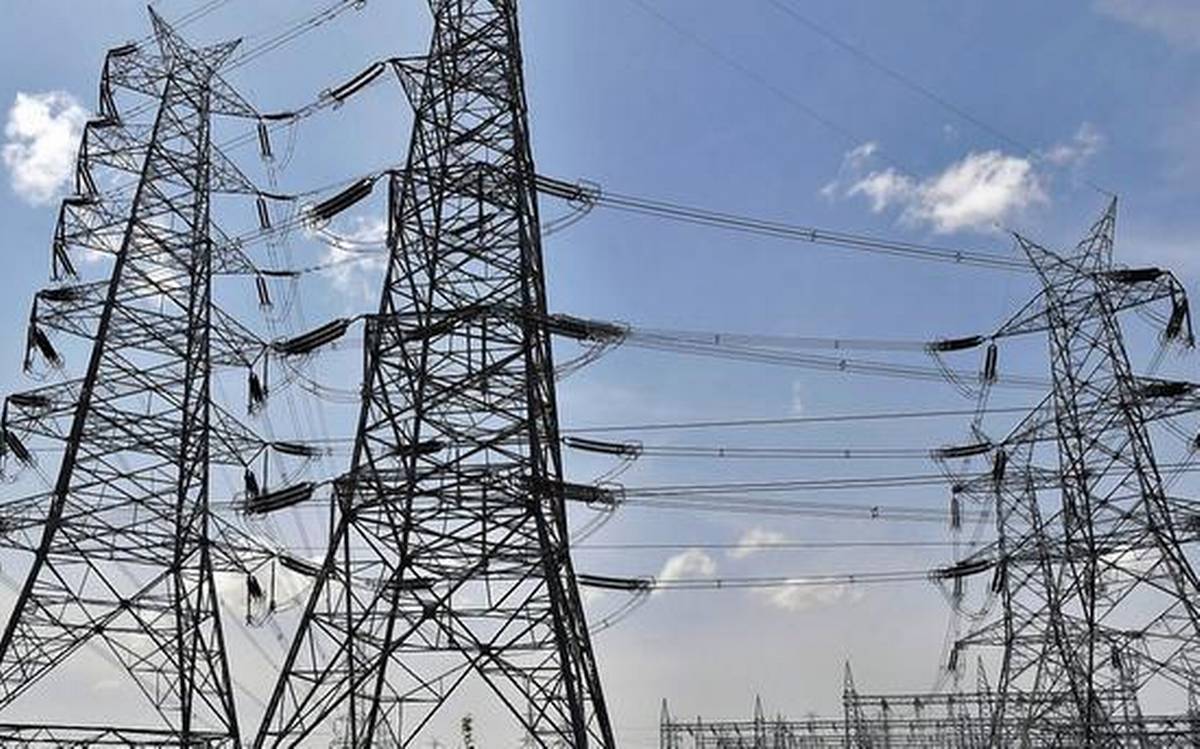
In a landmark Judgement, the Bombay High Court quashing the Government Circular that private educational Institutions are liable to pay duty has has ruled that all kinds of educational Institutions, whether public or private are exempted from paying electricity duty on the consumed energy.The Petition was filed challenging levying of electricity duty on the Educational Institutions, being managed by Shri Vile Parle Kelvani Mandal, which also manages Narsee Monjee Institutions, against imposition of a 21 percent electricity duty, which mounted to arrears of around 3 Crores. The Respondents in the Petition were TATA Power, Reliance Infrastructure and Adani Electricity. It was argued by the Petitioners that educational institutions run and managed by a society and a public charitable trust and hence though they are liable to pay for consumption of energy but not liable to pay electricity duty on the consumed energy. It was pointed out that even under the old Act, i.e., Maharashtra Electricity Duty Act, 1958 the electricity duty was not levied on the consumption charges or the energy consumed for the purposes of or in respect of a school or college or institution imparting education or training, students’ hostels, hospitals, nursing homes etc.However, in June 2018, the State Government by misreading the provision of Maharashtra Electricity Duty Act, 2016, informed them that charitable institutions registered under the Bombay Public Trust Act, 1950 are not entitled for electricity duty exemption with effect from 1st September, 2016. The petitioners argued that letter revoking the exemption was contrary to the Maharashtra Electricity Duty Act, 2016.On the other hand, the Advocate General appearing for the State argued that provision relating to exemption is not absolute and is a restricted exemption. It was also argued by the State that the educational institutions should pay electricity duty, as they are earning huge income by way of fees etc. and infrastructure is used for commercial gain. They can avail of the exemption only if it is granted conditionally or unconditionally.The Court therefore proceeded to interpret Section 3(2) of the MED Act, 2016 in context of the State Government circular that such of the educational institutions which are registered under the Maharashtra Public Trust Act, 1950 are excluded from the purview of the exemption and that exemption is now restricted only to the schools run and managed by the local bodies and other educational institutions will have to pay the electricity duty.Section 3(2) of the MED Act, 2016 reads as under:(2) Electricity duty shall not be levied on the consumption charges or energy consumed,- (i) ……; (ii) ………..; (iii) for the purposes of, or in respect of a school or college or institution imparting education or training, students’ hostels, hospitals, nursing homes, dispensaries, clinics, public streets lighting, public water works, sewerage systems, public gardens including zoos, public museums, administrative offices forming whole or, as the case may be, a part of system run by any local bodies constituted under any law for the time being in force in the State of Maharashtra.The Court also observed that the words employed in section 3(2)(iii) of the new law would indicate is that the electricity duty shall not be levied on the consumption charges or energy consumed by school or college or institution imparting education or training, students’ hostels, hospitals, nursing homes, dispensaries, clinics. Therefore, education and health, irrespective of whether service in such fields is rendered by public body or private body, is covered. Even the students’ hostels are covered by exclusionary clause. The Court after elaborating upon the provisions concluded that there is no intent to restrict the exclusion or the provision regarding non-application of the levy or non-application of the charging section to only Government premises or premises belonging to local bodies. The services in the field of health, education etc. run by local bodies or by institutions like the petitioners would equally be covered by the exclusionary clause or non-application of the charging section. The reason, which found favour with the Court was:Today we have a changed scenario. Post liberalisation, privatisation era, we have enormous presence of private sector in several fields. The service sector is now dominated by private entities. It has now been understood and as a matter of policy measure that it is impossible to reach out to a large section of our population and render all services to it. The Government has itself allowed the participation of the private sector and we have several services rendered by adopting PPP method. This means, Public Private Participation Method. The private sector has joined the Government or the public bodies, including local authorities in providing varied services which are essential for the public. Now, there is an increasing trend of handing over administration of public hospitals as well to charitable trusts and organisations. There is also encouragement provided to the private sector to independently enter the field of these services. In this field, the public services, which were hitherto provided only by the Government, public bodies and local authorities, are now either provided in the PPP method or by exclusive permission granted to the private sector to provide it. This may be done additionally. Therefore, it will not be proper to hold, as is suggested by the learned Advocate General, that it is only the educational, health, public services, which are provided either wholly or as a part of a system run by the local bodies constituted by any law for the time being in force in the State of Maharashtra, which are covered by the exclusionary provision or non-application of the charging section. The Court thus finally held that as the word “public” does not precede the words school or college or institution imparting education or training, students’ hostels, hospitals, nursing homes, dispensaries, clinics etc. in the new law, it allowed the Petition and quashed the Government Circular levying the electricity duty on the energy consumed. The Petitioner was represented though Shri Milind Sathe, Senior Counsel and Gaurav Srivastava, Advocate. Shri Ashutosh Kumbhakoni, Advocate General argued on behalf of the State. The Judgement of the Court was delivered through bench of Hon’ble Justice S C Dharmadhikari and Hon’ble Justice M S Karnik.
High Court declares 100% weightage to viva-voce for M.Phil./Ph.D. admission as arbitrary, unconstitutional says more weightage to written examination
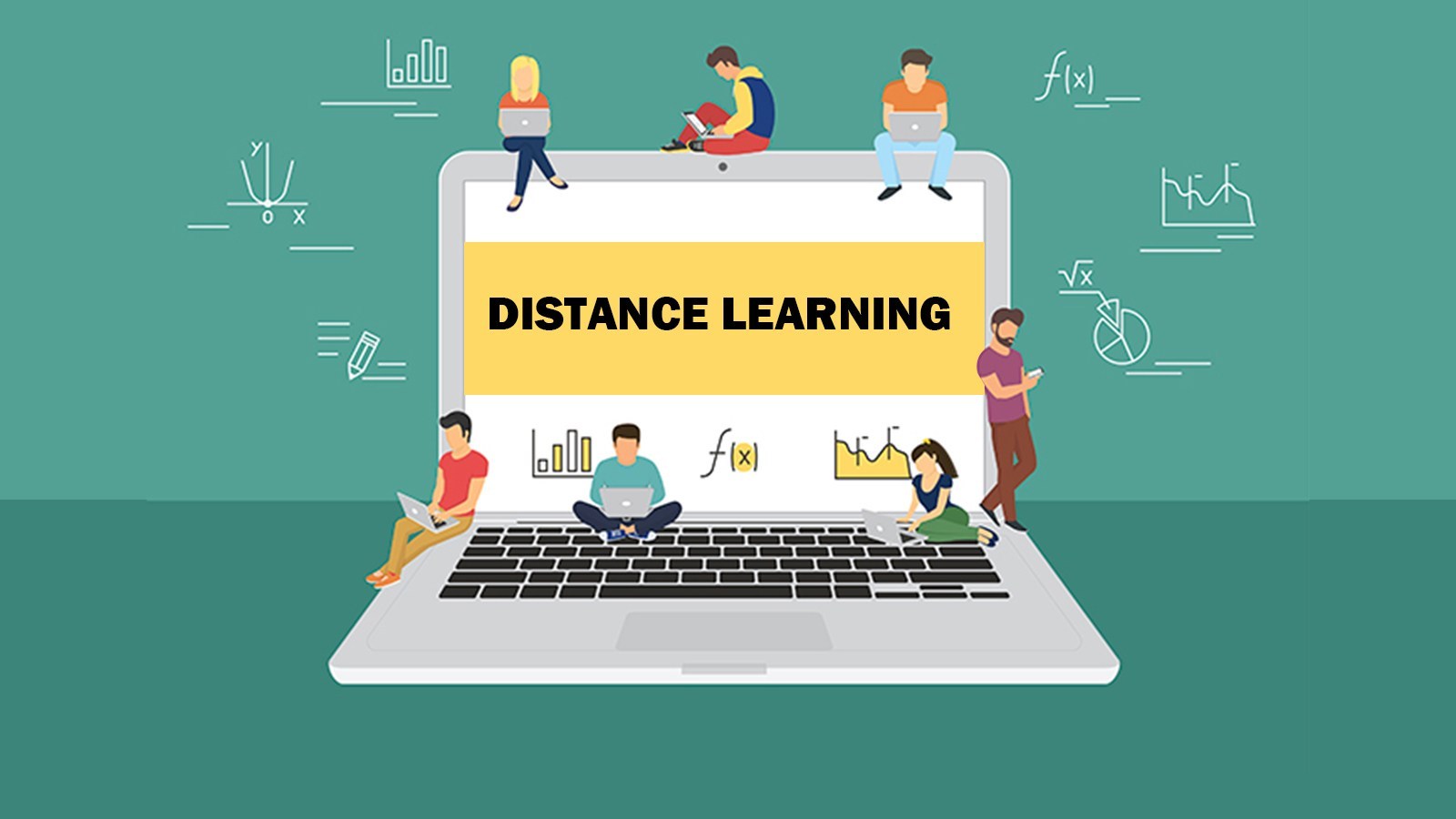
Education News www.edulegal.org mail@edulegal.in ravibhardwaj@gmail.comThe Delhi High Court in a landmark Judgement has declared that UGC Regulations in so far as it permits filling of M.Phil./Ph.D. entirely on the basis of cent percent evaluation of performance in the viva voce process is arbitrary. However, it has refused to interfere with the issue of supervisor researcher/student ratio and has held the prescribed ratio to be valid. The Petitioner, had alleged that the UGC 2016 Regulations permits that 100% weightage is given to viva voce assessment and makes the written examination as a mere qualifying process which means that the candidate whose eligibility on account of passing or clearing the examination, (for attempting which the candidate must obtain at least 55% marks) would be of no avail. It submitted that the lack of or in the absence of any credit given to the core performance in the written examination – which is part of the qualifying process for selection, and the complete and exclusive weightage given for interview and viva voce is disproportionate and unreasonable.The Petitioners had also challenged the new norm whereby professors, associate professors and assistant professors cannot guide more than a specified number of candidates. In specific challenge to the admission process of Jawahar Lal Nehru University admission process, it was contended that no relaxation of marks in the “qualifying exam” to the candidates of reserved category, thus keeping them at par with that General Category (i.e. the unreserved category), effectively restricting them at the entry level itself, defeats the objectives of the 93rd Constitutional Amendment Act, 2006 as well as the CEI Act.UGC defended the 2016 Regulations as reasonable and argued that it accords to weightage at each and every stage for admission process to a candidate on merit and performance. It was pointed out that at the first level to determine eligibility, the candidate should possess minimum marks (with some concession to SC/ST candidates) followed up with a written qualifying test which evaluates the student in the particular subject as well in his/her research capabilities is necessary. It is only if the student qualifies the examination, he or she is called for interview and based upon the power point presentation made in the course of the interaction and assessment (viva-voce) the decision whether to admit a particular candidate or not admit is taken. This procedure has been prescribed to maintain the quality and to check the mushrooming of substandard research degree.It was also argued in defence that unlike in the case of normal courses such as entry level courses at the under graduate level, those who wish to join M.Phil/Ph.D have to display high degree of not only proficiency and familiarity in the subject but also the ability to think originally and creatively and hence no fault can be found with the Regulations. The Court noted that Admission is by a two-stage process, wherein first the candidate has to qualify (secure at least 50%) in a written test that evaluates her knowledge and aptitude by testing research method and knowledge in the subject (both of equal value 50% each). The candidate is declared successful entirely based on the performance in viva voce. Here again, the interview board or selection board is not obliged to indicate any sub division towards knowledge of the candidate, her aptitude, ability to communicate, evaluate the power point presentation, etc. Nor are the marks scored by the candidate in the written exam given any weightage.The Court felt that “the entire weightage to performance of a candidate in the interview, or viva voce, based on the evaluation of the “power point” presentation affords the widest latitude to arbitrary and capricious behaviour of the members of the board, who know that the fate of admission hangs in their hands. Discretion, wherever allowed, is to be minimized; more so when it concerns admission to academic institutions.”The Court noted that a candidate having cleared the qualifying examination, the candidate is evaluated by a panel. Members of this panel are allowed the widest discretion; no separate marking or evaluation by each appears to be mandated; (no weightage is given to marks in the written test). Whereas one- of the panel, may be objective, the others might give full reign to their prejudices, – regional, caste, sectarian or as to all those extraneous factors, which are proscribed as arbitrary.The Court also pointed out drawbacks and deficiencies in the oral interview test and the conditions prevailing in the country, held that allocation of as high a percentage of the total marks for the oral interview as infecting the admission procedure with the vice of arbitrariness and selection of candidates made on the basis of such admission procedure cannot be sustained. As regards the second issue of absence of any concession to reserved category candidates – SC/ST/OBC in the qualifying examination goes, this Court notices that the eligibility criteria lowers the acceptable minimum from 55% in the case of M.Phil./Ph.D. aspirants respectively, the concession is to the extent of 5% inasmuch as certain reserved category candidates can compete in the qualifying examination though they possess lower than the minimum cut-off of 55%.The Court considering the prescribed pattern of admission and the procedure adopted where 100% or entire weightage is given to the interview process, the Court felt that there is a possibility of bias and also adverse impact to SC/ST and other reserved category candidates as palpable and real. Having regard to these facts, the Court is of the opinion that the JNU and UGC ought to have worked out a criteria to give some concession to SC/ST category candidates – and to the extent permissible under the Rules, to the OBC category candidates. The same considerations would also apply to persons with disabilities (PWD) candidates for whom a 5% reservation is statutorily mandated.On the last issue of fixation of a cap on a number of students that the faculty at the level of Professor, Associate Professor and Assistant Professor can supervise, at any given point of time, the Court felt that it cannot be a matter of judicial review. The Court observed that it should remain within the expertise of regulatory bodies such as UGC.The Court finally held as follows:That Regulation 5.4 of the UGC Regulations in so far as it permits filling of M.Phil./Ph.D. entirely on the basis of cent percent evaluation of performance in the viva voce process is arbitrary. The said regulation is, therefore, declared void and contrary to Article 14;The absence of any concession with respect to the minimum qualifying marks in the written test, in the UGC Regulations of 2016 to Page 35 of 35 reserved category candidates (SC/ST/OBC) and physically disabled candidates is also without proper application of mind. Appropriate concession is to be given by the UGC and the JNU, taking into account the seats filled, having regard to the implementation of the regulations in the last two academic years;The JNU is directed to take suitable review action to ensure that in any given academic year, no M.Phil./Ph.D. seat is left unfilled. It is also held that the UGC guidelines of 2016 in so far as they prescribe the supervisor researcher/student ratio is valid.The Petition was disposed with this directions.EduLegaL View:Interview or viva is basically test of personality of a person. In case of employment prescribing a higher percentage, personal characteristics and traits are extremely relevant for the purpose of selection is permissible. However, In the case of admission, the candidates are still in developing stages, their personality is yet to develop, and hence personality test may be a pre-mature selection parameter.In my view, in the admission process greater weight has be given to performance in the written examination. Oral Examination is absolutely discretionary, a candidate is not given more than 4-5 times, then nerves of result is also there and considering all these importance to be attached to the interview-test must be minimal.
Supreme Court gives severe blow to Deemed Universities, stays admission without AICTE Approval
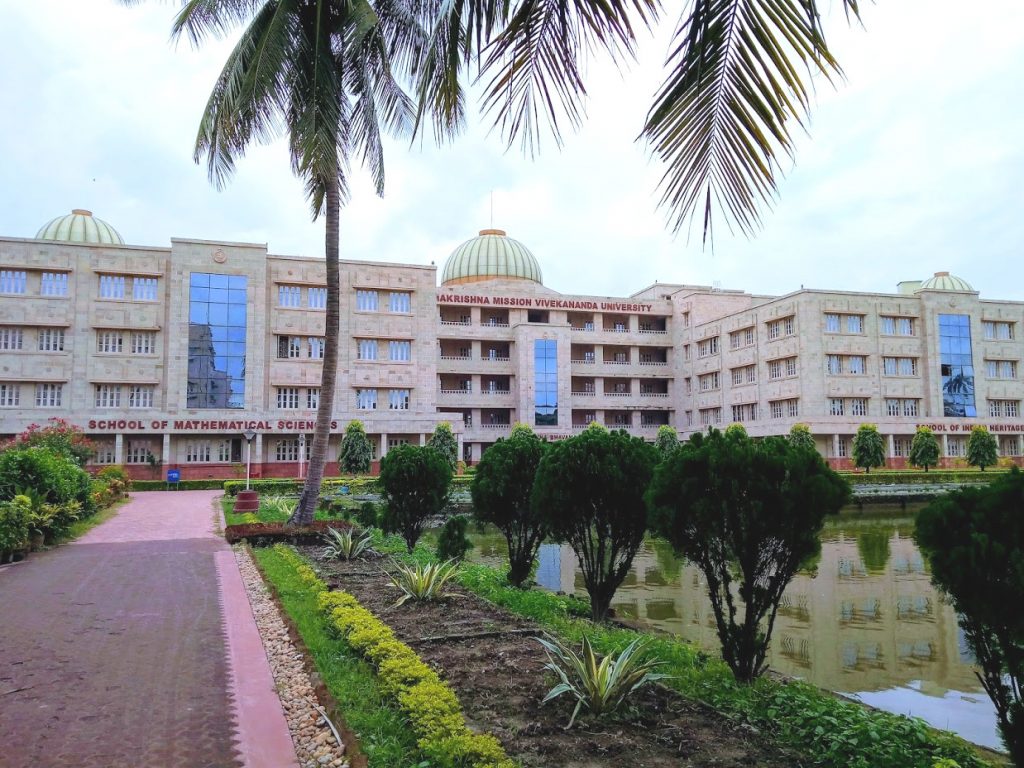
In a significant development, the Supreme Court has given a severe blow to the Deemed Universities and passed a restraining order staying admission in Deemed Universities without prior approval from the All India Council for Technical Education (AICTE).The Supreme Court vide its judgement in in case of Orissa Lift Irrigation Corp. Ltd. vs. Rabi Sankar Patro & Ors. [2017 (13) SCALE 148], while dealing with the issue of conducting of engineering courses in Distance Education mode, dealt with the aspect, as to whether, a Deemed to be University could start new courses in Engineering without the approval of AICTE. The Supreme Court for that purpose, categorised the Deemed Universities, asThe first category could be of a Deemed to be University, which was conferred such status for its excellence in a field of technological subject, is now desirous of introducing courses or programmes integrally connected with the area- in respect of which it was conferred Deemed to be University status. For example, an Engineering College which because of its excellence in the field was conferred Deemed University status, now wishes to introduce courses in subjects like Robotics or Nano Technology which are Engineering subjects and integrally connected with its own field of excellence.The second category could be of a Deemed to be University which was conferred such status for its excellence in subjects which are completely un-related to the field in which new courses are sought to be introduced. For example an Institution engaged in teaching Fine Arts and Music, for its excellence in that chosen field- or for that matter an institution engaged in teaching Law had been conferred such status.Can such a Deemed to be University claim immunity from regulatory control of AICTE and say that it is entitled, as a matter of right, to introduce courses in Engineering on the strength of the decision of Supeme Court in Bharathidasan University Case.UGC had argued that Deemed Universities in the second category mentioned above are not entitled, as a matter of right, to introduce courses leading to degrees in Engineering without the approval of AICTE.The Supreme Court came to the conclusion that a Deemed to be University in the second category mentioned hereinabove is still an institution of the stature of a “technical institution” and if it desires to introduce new courses it must seek prior approval of AICTE.Relying on the Judgement, AICTE in its handbook included Deemed Universities within its regulatory control and issued public notice to that effect. It also issued Public Notice to that effect. Being aggrieved by the action of AICTE, the Deemed Universities in several states approached High Court of Madras, Rajasthan High Court, High Court of Punjab and High Court of Andhra Pradesh and Telangana, challenging the Public Notice of AICTE. Their main contention before the High Court was that the Judgement of the Supreme Court was related to Distance Education and had no applicability for regular courses.In almost all the Writ Petitions filed by the different Deemed Universities, the High Courts were pleased to pass an order directing that AICTE will not take any coercive action, against the Petitioner Deemed Universities.Considering the pendency of the matter in different High Courts in country, AICTE filed Transfer Petition in Supreme Court seeking a direction to transfer the pending writ petitions to the Delhi High Court. It also appears that the AICTE appearing Additional Solicitor General Maninder Singh sought interim stay on admission as it was of the view that admission was against the direction of the Hon’ble Supreme Court.On 23.03.2018, bench of Justices Adarsh Kumar Goel, R F Nariman and U U Lalit issued notice on the Transfer Petition and passed its order “In the meanwhile, there will stay on admissions without the approval of the AICTE.”Next scheduled date in the matter is 11.05.2018.EduLegaL View:The order passed by the Hon’ble Supreme Court will have its impact across all states in view of the interim stay on admissions, requiring all deemed and deemed-to-be universities to seek approval of AICTE.With all due respect to Supreme Court and being fully cognizant of the authority of the Supreme Court, I feel that passing such a blanket restraining order specially when admission session is in process, is bound to case huge damage to Deemed Universities.Few Days ago, several Deemed Universities were granted autonomy from regulation and now this order nullifies the euphoria of autonomy, which was generated. Supreme Court itself had categorised the Deemed Universities in 2 categories to draw its conclusion and hence it would have been advisable to look into individual matter rather than a blanket order. It is bound to cause suspicion in the minds of the students.Several Deemed Universities were having interim order in their favour, they ought to have been heard, before the protection was taken away. It would also have to be seen that what will be the next course of action by AICTE, because many Deemed Universities under the interim protection has not applied to AICTE and the deadline in any case for applying has expired. Further it also has to be seen as to whether this order will be applicable qua the Respondents or will apply in rem.AICTE Act excludes Deemed Universities from its purview and hence carrying out a legislative amendment, AICTE had no authority to bring the Deemed Universities under its control. Argument Continues!
UGC relaxes mandatory NAAC accreditation for Universities in Distance Education Mode, also removes the admission restriction in study centre

New Delhi: The University Grants Commission by making 3rd Amendment in the ODL Regulations in less than 1 year, has relaxed the one of the most stringent parameter of NAAC Accreditation for Universities to impart education in Open and Distance Learning Mode.In the year 2017, UGC had finally notified the much-awaited Regulations to govern the Open and Distance Learning in India laying down the minimum standards of instruction for the grant of degree at the undergraduate and post-graduate levels, through Open and Distance Learning mode. Thereafter under pressure from the Universities, it was compelled to defer its implementation by one year to 2018-19, else the Regulations as it stood, would have brought the distance education system in the country to a halt.Later, due a challenge in Delhi High Court, it again the Regulations to continue the recognition of the Standalone Institutions, which it had arbitrarily sought to close down by the 2017 Regulations.Under the originally notified Regulations, a University, other than Open University could apply for recognition only if it had valid accreditation from NAAC and has completed five years of existence. Realizing that there was vagueness in the accreditation score, the Regulations was amended and vide Notification dated 06.02.2018, UGC specified that accreditation score with minimum Cumulative Grade Point Average of 3.26 on a 4 point scale, while retaining the five years of existence.The requirement of NAAC and that too on a higher scale of 3.26 on a 4 point scale had eliminated lot of players from ODL Education and was also challenged in various High Courts. Though, I do not think, there was any successful challenge to that regulations.However, UGC has now by Third Amendment Regulations 2018 has temporarily relaxed the the most stringent parameter of NAAC Accreditation for Universities to impart education in Open and Distance Learning Mode, allowing entry into the ODL Education but with a caveat to achieve the parameter before the end of academic session July 2019-June 2020. The Applicant University will have to submit Undertaking to this effect. If the NAAC score is not achieved then the approval may also go.UGC has also amended some norms relating to the requirement of manpower in the learning support centres. Earlier the 2017 batted for 2-4 counsellors for theory papers of 4 credits, the 2018 norms say that the ratio of counsellor to students should be at 1:100 ratio.In another relief to the ODL Universities, it has completely done away with the restriction on number of students admitted at Study Centre or Learner Support Centre. Earlier, it had prescribed that total number of learners admitted at any Study Centres or Learner Support Centres should not exceed1000 at any time.Post effecting the amendment, UGC has also now sought applications from the higher educational institutions for offering Open Distance Learning programmes. In a recent notice issued by Rajnish Jain, Secretary of the higher education watchdog, the UGC has said that post notification of the revised Regulations, the interested higher educational institutions can apply for offering such degrees through them.It also added, “The online portal for submitting applications shall be opened from September 18, 2018 to October 5, 2018. The duly certified copies of the applications along with annexes shall reach to DEB office of the UGC at 35, Feroz Shah Road, New Delhi within 10 working days of submission of online application.”EduLegaL View:I do not whether, the amendment should be called, regressive or progressive. But the amendment can certainly be called “accommodative”. The Regulations in its present form was not doing any good to spread of distance education in the country. In fact, several old players were facing the heat. With this relaxation, the number of applicants will increase, which will certainly add to the spread of distance education.Another restrictive clause, which requires consideration is the ‘minimum five year existence”. I do not find any reason in this clause. If a new University can impart education in technical education like engineering then why it need to wait for 5 years to start courses in ODL Mode. This criteria defies any rationale.Ravi Bhardwaj | ravibhardwaj@gmail.com | mail@edulegal.inEduLegaL View: The University Grants Commission by making 3rd Amendment in the ODL Regulations in less than 1 year, has relaxed the one of the most stringent parameter of NAAC Accreditation for Universities to impart education in Open and Distance Learning Mode.
AICTE incentive to teachers, Online Courses under MOOC to be considered as FDPs for promotion under CAS
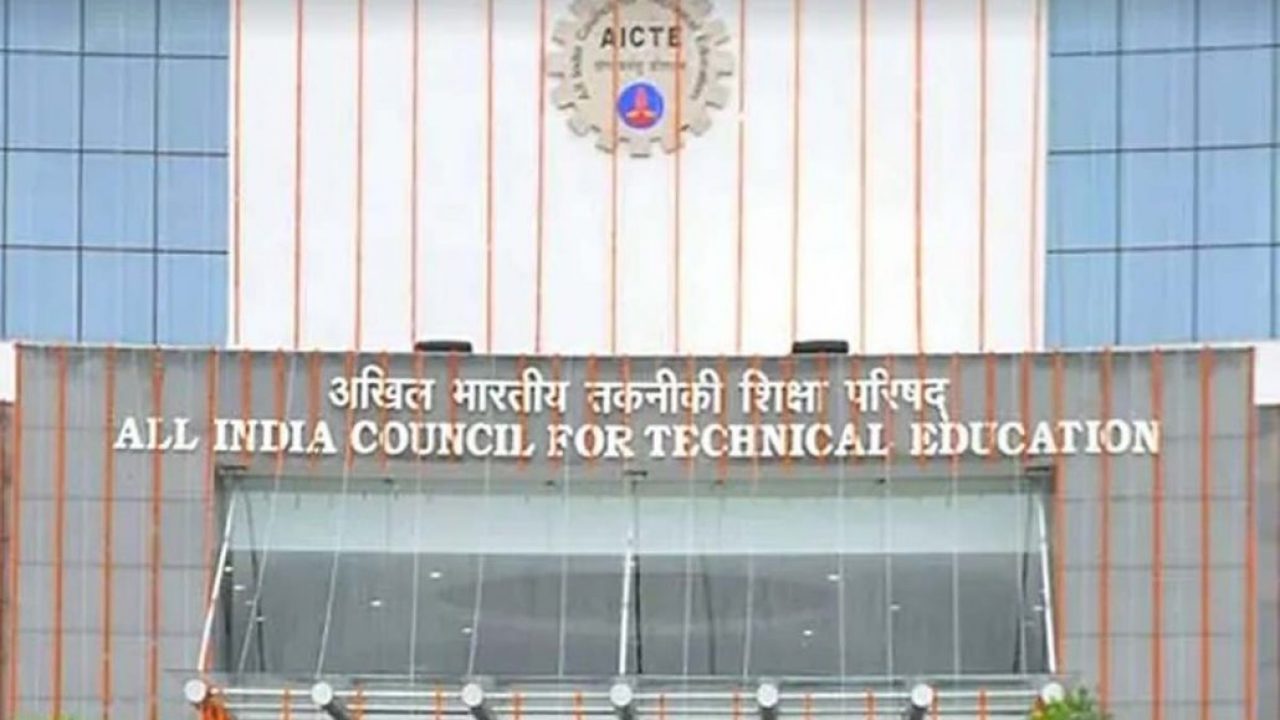
New Delhi: The All India Council for Technical Education (AICTE) has now in a major incentive to the teaching faculty has paved way for the faculty members teaching at the AICTE-approved institutions to improve their prospects of promotion under the Career Advancement Scheme (CAS) by opting for some certified online courses.The nodal technical education body in a recent notice to the technical educations have told them that the AICTE and the National Programme on Technology Enhanced Learning (NPTEL) have signed a Memorandum of Understanding (MoU) to ensure the teachers can avail the facilities of online Faculty Development Programme (FDP) which could later be used as valid certificate courses to be evaluated for promotions under the CAS.In a notice to the institutions, the AICTE signed by its adviser Dileep N Malkhende, the office said, “NPTEL and AICTE have signed an MoU whereby advanced certification courses of NPTEL are recognized as FDP by the AICTE. Every semester the list of courses eligible for FDP shall be made available by NPTEL’s Academic Council and published NPTEL’s website. Faculty members of institutions, appointed as per the AICTE Regulations for full time teaching and other academic activities can be benefited for these FDPs.”AICTE has also proceeded to notify a Regulation, “All India Council for Technical Education Regulations, 2018 [Career Advancement Scheme] [Degree/Diploma]” and has given this step a statutory backing. By this Regulation, it has also modified the existing and old Regulations to lay down equivalence of the online courses to faculty development program, shall be considered for faculty promotions under CAS.’NPTEL offers online basic and advanced level courses of different durations. AICTE has also ensured quality check and monitoring by laying down detailed procedure. Interested faculty will have to first register with NPTEL and then opt for their choice of course. There will be regular assignment and in-person examination at the end. Faculty members undertaking and completing such advanced courses sucessfully are only issued joint certification from NPTEL and the AICTE.The 2018 AICTE Regulations claim that as the Massive Open Online Courses of NPTEL are not full time programmes like regular FDPs their equivalence to regular FDPs are calculated based on the number of weeks and hours of attending the courses. The regulations claim that a four-week NPTEL course of three lectures per week consisting of 12 hours of engagement is equivalent to ½ FDP of one week whole the double amount will ensure full FDP of one week. Similarly if one attends 12 weeks of NPTEL course with 36 hours of engagement, he/she will earn equivalence of 1. 5 FDPs.EduLegaL View:Incentivising a teacher is like, giving incentive to the backbone of this country. Moreso, when other regulator has gone with laying down norms for online courses for students and awarding certificates and degrees, there was no reason, for teachers not be awarded this benefit.This will also help teachers devote more time at campus and with the students and eventually boost the teaching quality and standards.Ravi Bhardwaj | ravibhardwaj@gmail.com | mail@edulegal.in | www.edulegal.org |EduLegaL View: The All India Council for Technical Education (AICTE) has now in a major incentive to the teaching faculty has paved way for the faculty members teaching at the AICTE-approved institutions to improve their prospects of promotion under the Career Advancement Scheme (CAS) by opting for some certified online courses.
Leaves of teachers not to affect API scores and promotions, clarifies UGC
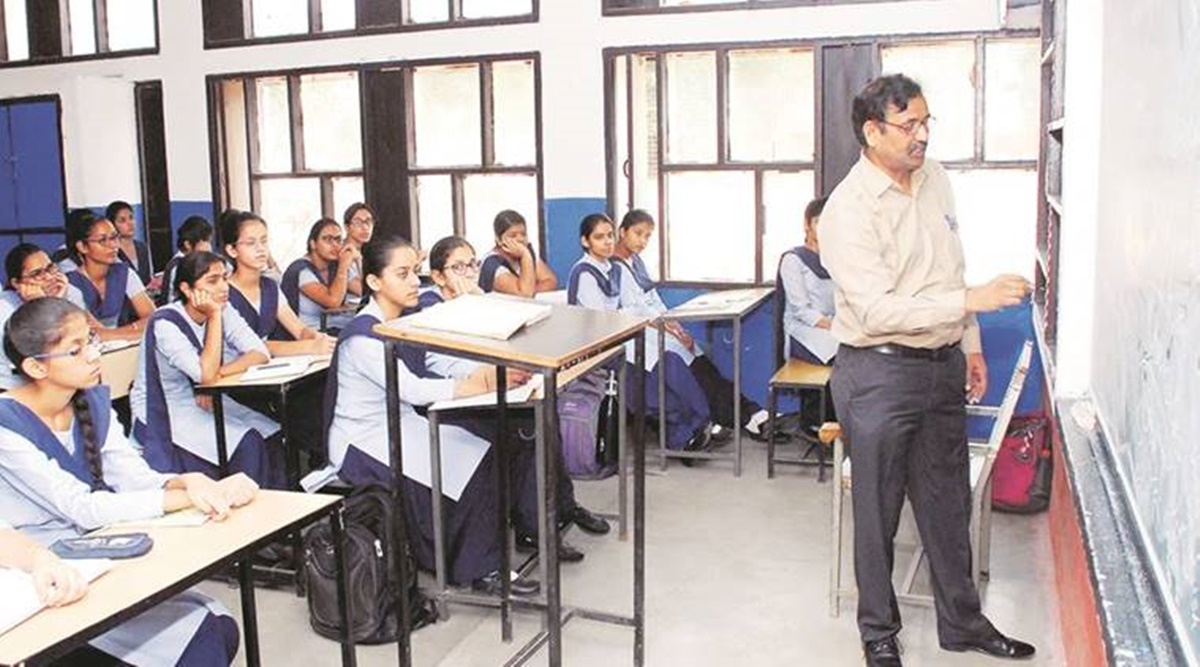
By Edu LegaL News, New Delhi BureauNew Delhi: The University Grants Commission (UGC) has now clarified that the potential teachers deemed to be promoted under the Career Advancement Scheme (CAS) would not need to worry about their leaves as those would not be considered for their promotion purposes.In a recent notice issued by the higher education regulator, the UGC said that for calculating API scores, different kinds of leaves would not be considered and the teachers will be assessed only for their performance on the non-leave period. The notice was issued by the UGC Secretary Rajnish Jain.In the notice, the UGC said, “For the purpose of calculating API score, all such periods of duration which have been spent by the teacher on different kinds of paid leaves such as Maternity Leave, Child Care Leave, Study Leave, Medical Leave, Extraordinary Leave and Deputation shall be excluded from the grading assessment.”It also said, “The teacher shall be assessed for the remaining period of duration of the assessment period and the same shall be extrapolated for the entire period of assessment to arrive at the grading of the teacher.”According to the UGC, the teacher who undergo for such leaves or deputation will not be put to any disadvantage for promotion under CAS due to their absence from their teaching responsibility. The only condition levied by the UGC is that such leave/deputation would have to be undertaken with the prior approval of the competent authority following all procedure laid down in UGC Regulations and as per the Acts, Statutes and Ordinances of the parent Institution.The Commission said that to discuss the issue which was raised by many, UGC held a meeting on the issue on August 2 and after wider consultations reached to the conclusion to relax the possible advserse impact of leaves on the API score of the teachers desirous to be promoted as per the laws of the UGC.The UGC said that the relaxations as mandated in the UGC (Minimum Qualifications for Appointment of Teachers and other Academic Staff in Universities and Colleges and measures for the Maintenance of Standards in Higher Education) Regulations 2018 should also be given for API score calculation of teachers governed by the UGC (Minimum Qualifications for Appointment of Teachers and other Academic Staff in Universities and Colleges and other Measures for the Maintenance of Standards in Higher Education) Regulations, 2010.EduLegaL View:Leave is a matter of right of an employee and hence putting any kind of disadvantage to the employee for availing leave was obviously affecting the ‘right to livelihood’ of an employee, which has been declared to be a fundamental right by Supreme Court.Nowadays Corporates have come up with very liberal policies for leave granting and availing of employees. Therefore, Education Sector cannot run in isolation and put a teacher to disadvantage for securing leave, which are prescribed under the Rules and Regulations.Obviously and rightly so, the leave has to be sanctioned and authorised one, to bring sanctity to this process.Ravi Bhardwaj | ravibhardwaj@gmail.com | mail@edulegal.in | www.edulegal.org ||EduLegaL View: he University Grants Commission (UGC) has now clarified that the potential teachers deemed to be promoted under the Career Advancement Scheme (CAS) would not need to worry about their leaves as those would not be considered for their promotion purposes.
UGC clarifies on equivalence of foreign PhD degrees; AIU certified will be exempted from NET
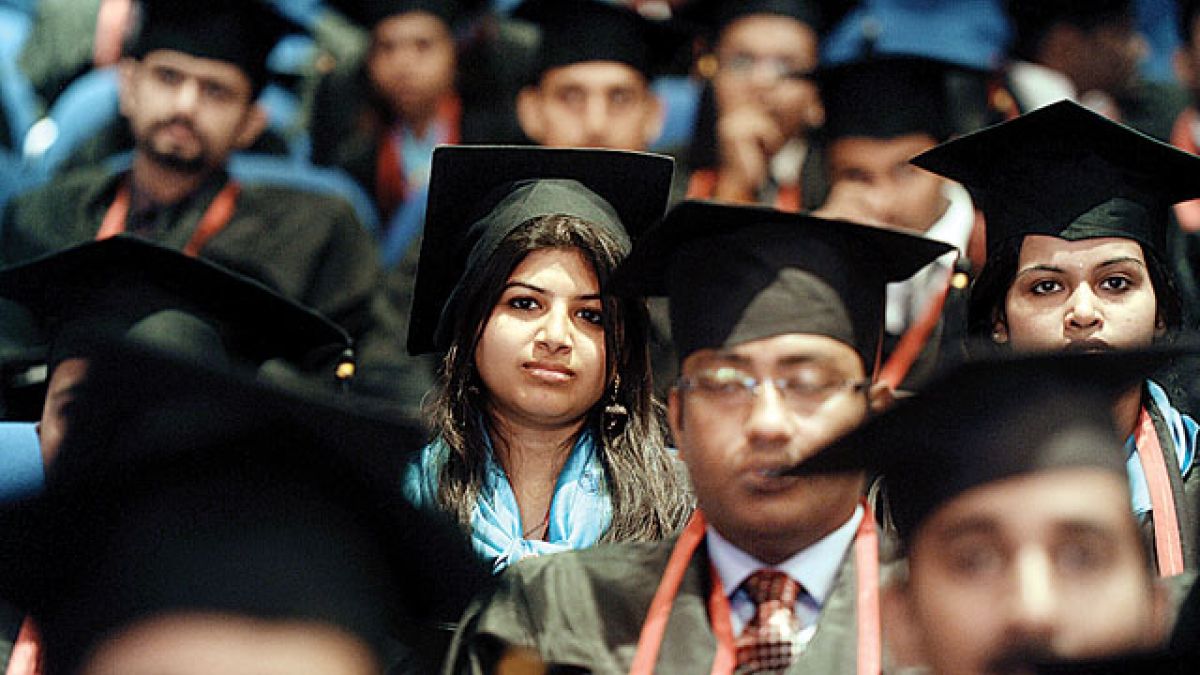
EduLegaL News, New Delhi: The University Grants Commission (UGC) after facing several queries on the issue of validity of PhD degrees earned through foreign university for admissions and recruitment in Indian institutions has now come forward with their clarification.In a recent notice issued by the higher education regulator dated June 8 it has highlighted their decision taken in March this year over the issue. The UGC now claims that any foreign PhD degree that has been ratified by the Association of Indian Universities (AIU) would be treated at par with the PhD degrees earned from Indian universities.The lack of clarify often marred the recruitment of Assistant Professors in Indian universities who used to hold foreign PhD degrees. To allay the apprehensions of the teaching fraternity, the UGC now says that an AIU ratification of their degrees could be of help for the which can help them from exempting the NET for their recruitments.In the notice issued on their website recently, the UGC said, “Any foreign PhD degree which is held equivalent by AIU by following its own procedure may also be treated valid for exemption from NET for appointment as Assistant Professor in Indian Universities and Colleges.”It also added, “It is, therefore, clarified that the universities can use the above provision also for determining the validity of foreign PhD degrees for exemption from NET for appointment as Assistant Professor in Indian Universities/Colleges.”The position earlier as per Clause 12 of University Grants Commission (Minimum Standards and Procedure for Award of MPhil/PhD) Regulations, 2016 was that if the MPhil/PhD degree is awarded by a foreign university, the Indian institution considering such a degree shall refer the issue to a Standing Committee constituted by the concerned institution for the purpose of determining the equivalence of the degree awarded by the foreign University. This obviously led to vesting lot of discretion with the Institution. Instead the present clarification brings a standardisation.Nevertheless, Union HRD Minister Prakash Javadekar on June 13 also announced in a press conference in New Delhi that PhD degrees would be made mandatory for the recruitment of teachers in Indian universities from 2021-22.Ravi Bhardwaj | edulegal.org | edulaws.com | mail@edulegal.in||EduLegaL View: he University Grants Commission (UGC) after facing several queries on the issue of validity of PhD degrees earned through foreign university for admissions and recruitment in Indian institutions has now come forward with their clarification.
Supreme Court gives severe blow to Deemed Universities, stays admission without AICTE Approval
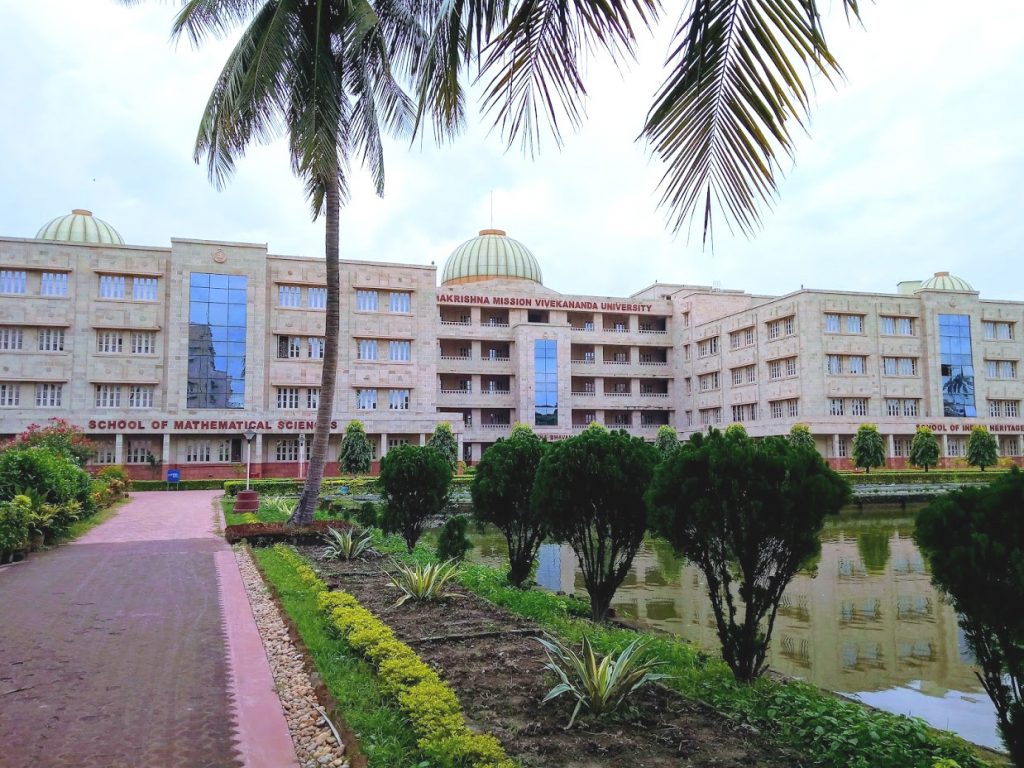
In a significant development, the Supreme Court has given a severe blow to the Deemed Universities and passed a restraining order staying admission in Deemed Universities without prior approval from the All India Council for Technical Education (AICTE).The Supreme Court vide its judgement in in case of Orissa Lift Irrigation Corp. Ltd. vs. Rabi Sankar Patro & Ors. [2017 (13) SCALE 148], while dealing with the issue of conducting of engineering courses in Distance Education mode, dealt with the aspect, as to whether, a Deemed to be University could start new courses in Engineering without the approval of AICTE.The Supreme Court for that purpose, categorised the Deemed Universities, as1] The first category could be of a Deemed to be University, which was conferred such status for its excellence in a field of technological subject, is now desirous of introducing courses or programmes integrally connected with the area- in respect of which it was conferred Deemed to be University status. For example, an Engineering College which because of its excellence in the field was conferred Deemed University status, now wishes to introduce courses in subjects like Robotics or Nano Technology which are Engineering subjects and integrally connected with its own field of excellence.2] The second category could be of a Deemed to be University which was conferred such status for its excellence in subjects which are completely un-related to the field in which new courses are sought to be introduced. For example an Institution engaged in teaching Fine Arts and Music, for its excellence in that chosen field- or for that matter an institution engaged in teaching Law had been conferred such status.Can such a Deemed to be University claim immunity from regulatory control of AICTE and say that it is entitled, as a matter of right, to introduce courses in Engineering on the strength of the decision of Supeme Court in Bharathidasan University Case.UGC had argued that Deemed Universities in the second category mentioned above are not entitled, as a matter of right, to introduce courses leading to degrees in Engineering without the approval of AICTE.The Supreme Court came to the conclusion that a Deemed to be University in the second category mentioned hereinabove is still an institution of the stature of a “technical institution” and if it desires to introduce new courses it must seek prior approval of AICTE.Relying on the Judgement, AICTE in its handbook included Deemed Universities within its regulatory control and issued public notice to that effect. It also issued Public Notice to that effect.Being aggrieved by the action of AICTE, the Deemed Universities in several states approached High Court of Madras, Rajasthan High Court, High Court of Punjab and High Court of Andhra Pradesh and Telangana, challenging the Public Notice of AICTE. Their main contention before the High Court was that the Judgement of the Supreme Court was related to Distance Education and had no applicability for regular courses.In almost all the Writ Petitions filed by the different Deemed Universities, the High Courts were pleased to pass an order directing that AICTE will not take any coercive action, against the Petitioner Deemed Universities.Considering the pendency of the matter in different High Courts in country, AICTE filed Transfer Petition in Supreme Court seeking a direction to transfer the pending writ petitions to the Delhi High Court. It also appears that the AICTE appearing Additional Solicitor General Maninder Singh sought interim stay on admission as it was of the view that admission was against the direction of the Hon’ble Supreme Court.On 23.03.2018, bench of Justices Adarsh Kumar Goel, R F Nariman and U U Lalit issued notice on the Transfer Petition and passed its order “In the meanwhile, there will stay on admissions without the approval of the AICTE.”Next scheduled date in the matter is 11.05.2018.EduLegaL View:The order passed by the Hon’ble Supreme Court will have its impact across all states in view of the interim stay on admissions, requiring all deemed and deemed-to-be universities to seek approval of AICTE.With all due respect to Supreme Court and being fully cognizant of the authority of the Supreme Court, I feel that passing such a blanket restraining order specially when admission session is in process, is bound to case huge damage to Deemed Universities.Few Days ago, several Deemed Universities were granted autonomy from regulation and now this order nullifies the euphoria of autonomy, which was generated. Supreme Court itself had categorised the Deemed Universities in 2 categories to draw its conclusion and hence it would have been advisable to look into individual matter rather than a blanket order. It is bound to cause suspicion in the minds of the students.Several Deemed Universities were having interim order in their favour, they ought to have been heard, before the protection was taken away. It would also have to be seen that what will be the next course of action by AICTE, because many Deemed Universities under the interim protection has not applied to AICTE and the deadline in any case for applying has expired. Further it also has to be seen as to whether this order will be applicable qua the Respondents or will apply in rem.AICTE Act excludes Deemed Universities from its purview and hence carrying out a legislative amendment, AICTE had no authority to bring the Deemed Universities under its control.Argument Continues!Ravi Bhardwaj | mail@edulegal.in | ravibhardwaj@gmail.com||EduLegaL View: In a significant development, the Supreme Court has given a severe blow to the Deemed Universities and passed a restraining order staying admission in Deemed Universities without prior approval from the All India Council for Technical Education (AICTE).
NAAC releases Guidelines, Questionnaire for Student Satisfaction Survey, makes it critical element in Accreditation
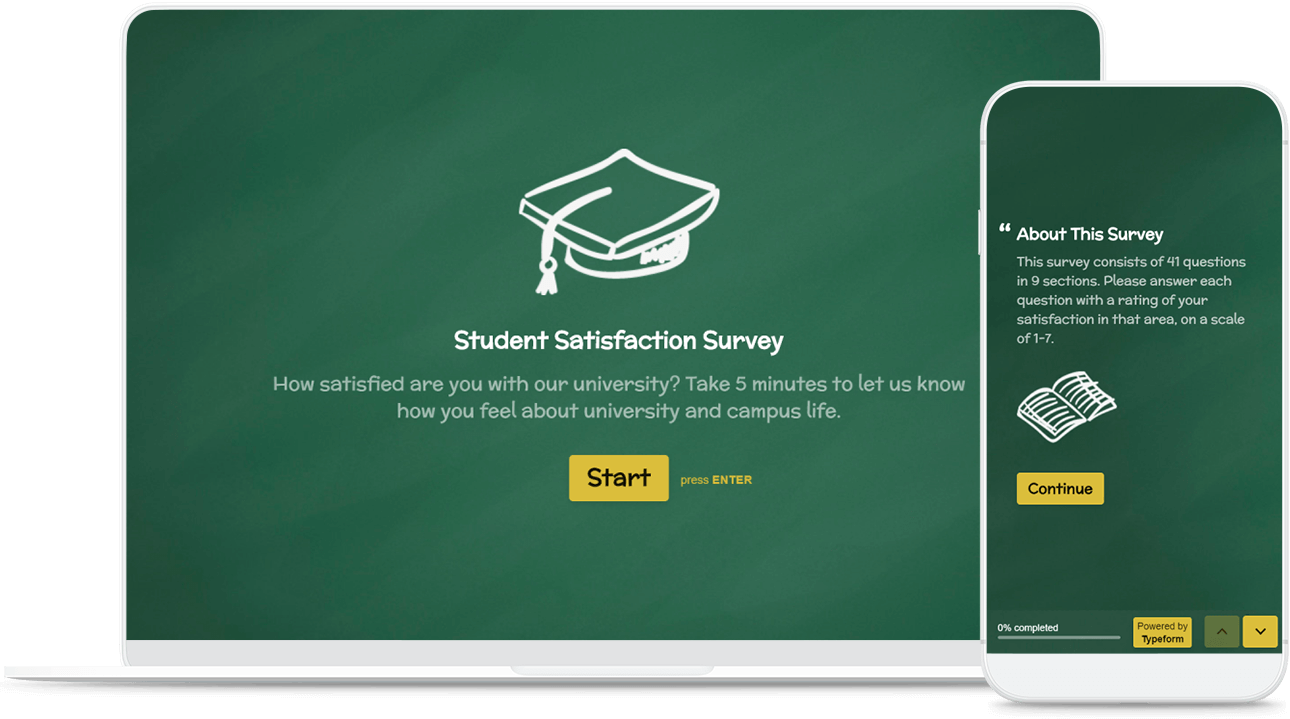
In the year 2017, NATIONAL ASSESSMENT AND ACCREDITATION COUNCIL (NAAC), an autonomous body established by UGC to assess and accredit institutions and the grade the Institute had revised its assessment and accreditation process. One of the major features of this revised process was seeking response / feedback from the students about the information submitted by the Institutes and then giving weightage to the student’s response. Now NAAC has released detailed guidelines and also the questionnaire relating to the student satisfaction survey.In this Survey during the process of Accreditation, students would be required to Questions, which would vary from specific teaching skills of the teacher, to his overall approach to the educational process. Specific skills of the teacher like, subject knowledge, communication skills, class preparation, Fairness of the internal evaluation process and use of ICT tools are part of the questionnaire. The overall approach of the teacher and institution with respect to providing the right environment, opportunity for growth, motivation, interpersonal relationships, feedback etc. forms the second major component of the questionnaire.There are twenty objective questions in the questionnaire and one open ended question, question is open ended to elicit observations and suggestions for improvements providing an opportunity to the student to give suggestions and criticisms in their own words. Students will respond on a scale of 4 to 0, with the most positive response rated as 4 and most negative response rated as 0. The mean score for each question will be calculated and the overall mean will be arrived at. This figure will range from 4 to 0 and will give the mean satisfaction level of the students for the particular institute.The institution is supposed to send a list of total student strength, with details of their student ID number, Aadhaar ID number (Any other Valid ID No. in the absence of Aadhaar), degree programme, email id and mobile number. NAAC will send online link to the survey to the email address/mobile no of the student, and the student will have to fill the survey before a stipulated date.Curiously, for the purpose of conducting survey, a stratified random sample of students will be chosen. Response rate below 10% will not be considered. In sample, students would be spread evenly across different classes, year of enrolment and gender as far as possible.The survey analysis score will be used as a key component of accreditation. The institution, teachers; have been warned by NAAC not to influence the students with respect to the survey and ensure that the process is genuine feedback for the institute.EduLegaL View:Globally, Student Satisfaction Survey (SSS) is administered annually to determine all students’ level of satisfaction with various student support areas and services. In India, though it has been done at informal level, this is the first time that it has been made part of accreditation process and also being given pre-determined weightage. This also is a great attempt to give voice to the students, the important stakeholder in the system.I have my huge doubts on the methodology of the sampling and response rate of 10 % and above to be adequate for benchmarking the Institute. This size of sampling is never going to give accurate data and will eventually not support the manifestation of this idea.Further, if it is to be done during the accreditation, then it means it will miss many batches of 2 years course, and thus missing a substantial size of stakeholders. To bring more consistency and meaning into this process, it should be conducted annually. But it should also not become a strategic tool in the hands of the students.Ravi Bhardwaj | www.edulaws.com | www.edulegal.org | ravibhardwaj@gmail.com||EduLegaL View: In the year 2017, NATIONAL ASSESSMENT AND ACCREDITATION COUNCIL (NAAC), an autonomous body established by UGC to assess and accredit institutions and the grade the Institute had revised its assessment and accreditation process.
Personal Data Protection Bill, 2019 and its impact on Schools in India

Personal Information” and the right of a person to their own information are included in the concept of “Right to Privacy”, which has been declared a Fundamental Right under Article 21 of the Constitution of India, by the Hon’ble Supreme Court of India in 2017. Therefore, any breach of personal information or failure to protect personal information, would be impinging upon the “Fundamental Right” of the concerned person.At the moment protecting data, in a limited capacity, is within the purview of the Information Technology Act, 2000. Pursuant to the 2017 privacy judgment, the proposed legislation which seeks to comprehensively address data protection in India is the Personal Data Protection Bill, 2019. The proposed law is likely to be enacted very soon will also repeal the provisions pertaining to data protection under the IT Act, 2000. The Data Law deals substantially with what ought to be done with data of individuals which is in the nature of personal information. Nature of Data collected by SchoolsIn the context of schools and educational institutions there are different types of data i.e. personal information which are used extensively for various activities. Data collected by schools vary from personal details and progress/disciplinary reports to medical/health data and even financial information (of parents/guardians) as well. Every bit of data relating to children or their guardians is collected and further processed by schools. With the Data Law likely to be implemented soon in India the repercussions are aplenty especially for schools, considering that they deal substantially with data of minors.How are Children/Students treated under the Data LawA natural person to whom any personal data relates is known as a Data Principal under the Data Law. Children will be recognized as such and there are also certain strict provisions when it comes to data relating to minors. Data principals have certain rights granted to them under the Data Law which even includes the right to have their data erased, amongst others.Under the Data Law, anybody who determines the purpose and means of processing personal data is known as a Data Fiduciary. In this case, it would be Schools.Besides being data fiduciaries, it may also be entirely feasible that the Data Protection Authority of India (DPAI appointed under the proposed Data Law will further classify schools as guardian data fiduciaries and significant data fiduciaries (SDF)The various rights granted to data principals make it necessary for schools to ensure that substantial resources and processes are put in place so as to meet their obligations and duties under the Data Law. For instance, if a student seeks to enforce their right to erasure of information that is no longer necessary for the purpose for which it was created, schools would have to make sure that they completely remove such data. It is entirely feasible that students could ask for erasure of their disciplinary records which the school no longer requires. While the school may refuse such a request it would have to give an adequate justification for such refusal. Having said that, should the student be dissatisfied with such justification, they could take up the matter to the DPAI so to enforce their rights.Data principals may also be in a position to point out that progress /disciplinary reports can be classified as data that could cause significant harm. While performance related information is a core component of educational institutions, only time will tell how schools could get affected. Nevertheless, preparation for the Data Law beforehand would go a long way in ensuring compliance when the law does come into force.Duties and Obligations of SchoolsAs data fiduciaries (guardian and significant, subject to being classified as such) are required to meet certain stringent obligations with respect to data, schools would need to keep in mind that any activity of processing data should respect the privacy of the individual at all times. Schools would also have to ensure that they seek consent of the parents/guardians when they want to process any data relating to minors. Schools will have to confirm that transparency, accountability and strict mechanisms and processes are in place so as to adhere to various duties and obligations outlined in the Data Law.As guardian data fiduciaries, any profiling, tracking or behavioral monitoring of children may also be restricted if such processing is likely to cause any significant harm to a child. One of the elements of harm under the Data Law is loss of reputation or humiliation. A concern here is on account of such a restriction being counterproductive to the basic functioning of a school.Where large volumes of sensitive personal data are being processed by schools, the DPAI may additionally seek to classify them as an SDF. Under the Data Law an SDF would be required to register with the DPAI and additionally appoint a Data Protection Officer (DPO).Privacy PracticesA ‘Privacy by Design’ policy and approach would be a mandated that will need to be adopted by all schools. Such a policy approach deals with systems to anticipate, identify and avoid harm to the students/former students. Ensuring technological processing is in accordance with certified standards as also that the processing is secure at all stages would become a fundamental requirement for schools.Consequences of Non-complianceIt would bode well for schools that they consider the numerous issues under the Data Law so that they understand the obligations and duties towards information collected by them. The substantial penalties which range from Rs. 5 crores to Rs. 15 croresas also the possibility of imprisonment of up to 3 years in certain cases, besides the damage to their reputation could cost the schools dearly.ConclusionIn light of the stringent data protection regime that India is likely to see in the near future and the heavy penalties, it would be advisable that schools and educational institutes start ensuring efficient systems and processes regarding their data collection. Whether at the time of students seeking admission or during their regular functioning schools would have adhere to the strict requirements under the Data Law.While an apple a day keeps the doctor away, in the context of data protection, appoint a DPO today to keep the DPAI away.Ravi Bhardwaj | Gaurav Sharma |||EduLegaL View: In light of the stringent data protection regime that India is likely to see in the near future and the heavy penalties, it would be advisable that schools and educational institutes start ensuring efficient systems and processes regarding their data collection.
UGC requests Institutions to consider relaxation in collection of fees in view of the COVID-19 Pandemic
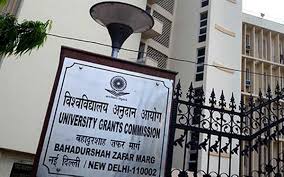
UGC in continuation of its earlier Guidelines, regarding Examinations and Academic Calendar in view of the COVID-19 Pandemic, has now written to all the Colleges / Universities to grant relaxation in payment of fees.The Higher Education Regulator, which has set up a Portal, to address the grievances/concerns of the students arising out of the COVID-19 Pandemic situation has received grievances from the students and parents stating that universities and colleges are insisting upon immediate payment of annual/semester tuition fee, examination fee, etc. Students / Parents have also represented that due to the financial hardship being faced due to the lockdown, they are not in a position to make payment of fee.Considering the grievance of the student and in view of the prevailing extraordinary difficult circumstances UGC has requested the universities and colleges to consider the matter regarding payment of annual/semester fee, tuition fee, examination fee, etc. sympathetically and if feasible, may consider offering alternative payment options to students till the situation returns to normal.UGC has also advised the universities and colleges to consider individual requests from students, received if any, concerning payment of fee, in a considerate manner, keeping in view the present COVID-I9 Pandemic.Read the UGC Advisory to University / CollegesEducation News | EduLegaL | mail@edulegal.in||EduLegaL View: In a landmark Judgement, the Bombay High Court quashing the Government Circular that private educational Institutions are liable to pay duty has ruled that all kinds of educational Institutions, whether public or private are exempted from paying electricity duty on the consumed energy.
Establish Grievance Cell to address students’ concern of academics, classes, examination in view of COVID-19 Pandemic: UGC to Institutes

UGC has reminded all the Universities / Colleges to establish Grievance Cell to address the concern of the students, faculty relating to classes, salary, teaching etc., in view of the Covid-19 Pandemic.Earlier, UGC had issued comprehensive Guidelines on Examinations and Academic Calendar on 29 April 2020. UGC had therein advised the Universities / Colleges to start the academic session from 1st August 2020 and 1st September 2020, for continuing and fresh students respectively. UGC has also advised the Universities / Colleges in the Guidelines to adopt all steps to ensure health and safety of all the stakeholders.Read More:UGC Requests Institutions To Consider Relaxation In Collection Of Fees In View Of The COVID-19 PandemicUGC Guidelines on Examinations and Academic Calendar for the Universities in View of COVID-19 Pandemic and Subsequent LockdownVarious communications channels were opened by UGC in view of Covid-19 Pandemic to receive grievance of the students. Based on the emails and phone calls received so far it has been observed that the grievances pertain to academics, examinations, admissions, fee, salary of faculty etc. The students have represented regarding completion of syllabi, technical glitches during online classes, conduct of face to face classes, infrastructural constraints, examinations, issues related to back papers, admission processes, collection of compulsory non-refundable deposits, etc.In light of receipt of several complaints, UGC has reminded the Universities / Colleges that it is their primary responsibilities of universities/colleges/state to address the grievances of the students and resolve the same. Further, referring to the 29th April 2020 Advisory, UGC has asked Universities / Colleges to establish a cell for handling student grievances related to examinations and academic activities during COVID-19 pandemic and notify effectively to the students.Universities have also been asked to take proactive measures in a time bound manner to redress the grievances of the students and stake holders. UGC has also asked the Universities / Colleges to inform the students about the measures taken by them in view of Covid-19 pandemic.||EduLegaL View: UGC has asked Universities / Colleges to establish a cell for handling student grievances related to academics, examinations, admissions, fee, online classes, conduct of face to face classes, back papers, etc., during COVID-19 pandemic and notify effectively to the students.
Deemed Universities cannot charge fees, which is not mentioned in the prospectus: Kerala HC
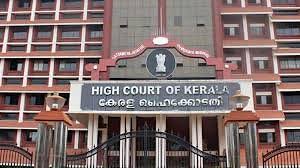
Deemed Universities cannot charge fees, which is not mentioned in the prospectus: Kerela HCIn a recent Judgement, Hon’ble Kerala High Court has ruled that Deemed Universities cannot charge fees in excess from the students, which is not mentioned in the prospectus. The High Court also directed the Deemed University to refund the excess fee collected from the students.The Judgement was passed in a writ petition is filed by 51 Ph.D scholars of Indian Institute of Space Science and Technology. They were aggrieved by a University circular, by which all Ph.D students were required to pay semester fees of Rs.12500/- w.e.f. July 2017.It was submitted by the students that they were admitted as Ph.D scholars, and at the time of admission, the notification proposed to be collected later and hence the later circular for the payment of any fees can have no effect on the petitioners who had secured admissions prior to the implementation of the same and on the basis of a notification which did not provide for such fees. The students approached the University raising their concern, which was rejected.It was contended by the University that there is a general clause in the Rules enabling the university to fix fee and that the institute has been sending offer letters to all selected PhD candidates all these years indicating that they will have to remit tuition/registration fee along with fee for boarding/lodging and medical facilities etc, of the institute as may be prescribed from time to time. It was also argued that fees has been imposed after following detailed procedure, under various heads and the same is within their reasonable margins especially when the students are imparting education in Ph.D level.The Court speaking through Hon’ble Justice Anu Sivaraman referred to the University Grants Commission (Institutions Deemed to be Universities) Regulations, 2016, and various provisions in the Regulations relating to fees and publication of prospectus. Clause 6.1 of the Regulations provides that no institution deemed to be university shall, for admission in respect of any course or programme of study conducted in such institution, accept payment towards admission fee and other fees and charges other than such fee or charges for such admission, which has been declared by it in the prospectus for admission against any such seat, and on the website Of the institution.With regard to the prospectus, Clause 6.5 of to the University Grants Commission (Institutions Deemed to be Universities) Regulations, 2016, it is provided that every institution deemed to be university shall publish. before expiry of sixty days prior to the date. of the commencement of admission to any of its courses or programmes of study, a prospectus containing the following for the purposes of informing those persons intending to seek admission to such institution which shall also include each component of the fee, deposits and other charges payable by the students admitted to such institution for pursuing a course or a programme of study, and the other terms and conditions of such paymentThe Petitioners are also relied on these Regulations to say that they had been admitted on the specific assurance that they would not have to pay any tuition fee and that they are not liable to pay any amounts, except the boarding, lodging and medical facilities as per the IIST Rules as provided in admission notification.The Hon’ble Court noted that the petitioners were admitted in terms of admission notification of 2013, which does not provide for the payment of any fees and fees was sought to be imposed later in the year 2017.The Court finally ruled that:In view of the specific provisions contained in UGC Regulations that fees can be collected only after informing the applicants by way of a prospectus and in view of the specific contentions that there was no such intimation in the admission notifications pursuant to which the petitioners were admitted, I am of the opinion that Exhibit P1 circular can have no application to the petitioners, who were admitted prior to the issuance of the same.The Court therefore allowed the writ petition directing the University to collect only such fees as are provided in the admission notifications/prospectus on the basis of which the petitioners were admitted. The Court also directed the University to refund any amounts collected in excess shall from the students.Read:University Grants Commission [Deemed to be Universities] Regulations, 2016EduLegaL View:Consensus ad idem’ is a basic concept of contractual law. Student-Institution relationship indisputably is contractual in nature. When consent of a student to confirm admission has been taken on basis of some representation, it will be hard to defend any change in such representation, which is to the disadvantage of the student. Hence this judgement is also based on the principle of “informed consent”. This applies universally to all the educational institutions. mail@edulegal.in | www.edulegal.org||EduLegaL View: In a recent Judgement, Hon’ble Kerala High Court has ruled that Deemed Universities cannot charge fees in excess from the students, which is not mentioned in the prospectus. The High Court directed the Deemed University to refund the excess fee collected from the students.
Bar Council of India issues Guidelines for Online Examination in light of Covid-19 Pandemic
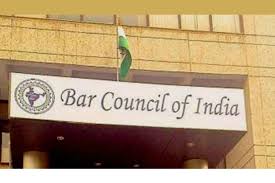
Bar Council of India issues Guidelines for Online Examination in light of Covid-19 PandemicBar Council of India taking cognizance of the crisis caused by the Covid-19 Pandemic has issued Guidelines for conducting Online Examination for Final Year Students as well as Immediate Semester Students.Considering the detailed Guidelines issued by the University Grants Commission on 27.04.2020, the General Council of the Bar Council of India in its meeting held on 24.05.2020 has resolved that the Final Year Students of 3 years and 5 Year Courses may be allowed to appear for their examination in online mode. It also took into consideration the difficulties, which some students may face in online accessibility and therefore has asked the Universities to adopt an alternate strategy for conducting examinations.In respect of the Immediate Semester Students, the General Council resolved that such students should be promoted on the basis of performance of previous years and marks obtained in internal examination of the current year. It also directed the Universities to conduct the end semester examination within a month of re-opening of colleges.Bar Council of India has strictly instructed the Institution to maintain the highest academic standards and integrity in conducting the examinations. In view of the safety and health of the students, it has instructed the Institutions to strictly adhere to the Covid-19 Protocol and ensure compliance with hygiene and social distancing norms in classrooms and campus.Also Read:UGC requests Institutions to consider relaxation in collection of fees in view of the COVID-19 PandemicUGC Guidelines on Examinations and Academic Calendar for the Universities in View of COVID-19 Pandemic and Subsequent LockdownUGC directive regarding Monitoring grievances/ concerns related to Examinations and Academic Calendar in view of COVID-19 pandemicEducation News | www.edulegal.org | mailedulegal.in</a>||EduLegaL View: Bar Council of India taking cognizance of the crisis caused by the Covid-19 Pandemic has issued Guidelines for conducting Online Examination for Final Year Students as well as Immediate Semester Students.
Online Examinations, Government agrees to address grievances of the blind students, Court however refuses to stay the Examination Process

The Delhi High Court taking cognizance of petition by National Federation of the Blind, who have been asked to appear for the Online Examinations of the Delhi University has directed UGC, Central Government and the Delhi University to consider their grievances and find a solution for such blind students.The Petition filed by National Federation of the Blind challenges the decision of the Delhi University (DU) for holding of Open Book Examination remotely for the final year/term/ semester students on the ground that the same is against the rights of students with visual impairment and other disabilities under the Rights of Persons with Disabilities Act, 2016.The Petitioners had sought assessment of the performance of visually impaired and other disabled students of final semester/term/ year, both of UG and PG programmes, for Academic Session 2019-2020, on the basis of their performance in the previous semester as well as internal assessment, on the same basis as has been decided to be done for other intermediate semester students.The Petitioners pointed out several difficulties which the students suffering from visual impairment, are likely to face, which are (i) non-availability of scribes in the prevalent Covid-19 situation; (ii) the hesitation of the scribes, even if available, to act as a scribe on account of social distancing norms still advised to be followed; (iii) non-availability of course material with the students (we are informed that the course material was provided by the respondent No. 2 DU); (iv) several of the students having left Delhi and being presently stationed at their hometowns/ cities/villages where it is not possible for them to participate in the Open Book Examination by downloading the question-paper and by uploading the answer-sheets; and, (v) lack of assistive devices with the students at the place where they presently are.The Hon’ble High Court did not consider the demand of the Petitioners for assessment on the basis of internal assessment only or on the basis of their performance in the earlier semester, taking a view that once the academic authorities competent to take a decision in this regard have taken a decision to hold an examination there is no need to interfere in the decision of the academic authorities.Also Read:PIL filed by parents in Supreme Court seeking cancellation of CBSE Class 12th Board Exam to be held in JulyBar Council of India issues Guidelines for Online Examination in light of Covid-19 PandemicThe University and the Government Authorities informed the Hon’ble Court that they will hold parlays with the petitioner and with representatives of students with other disabilities, to resolve the various difficulties which students with disabilities have expressed and find solutions therefor. The Counsel appearing for the Government also assured that if the study material of any of the students is locked in the hostel rooms, provision shall be made to enable the students to collect the said material as and when desired by them. It was also assured that if any additional study material is required, endeavour shall be made to provide the same.The Respondents authorities assured the Court that a solution would definitely be placed before this Court with respect to each of the aforesaid apprehensions/difficulties expressed by the petitioner, on the next date, the Hon’ble Court has been pleased to schedule the matter on 12.06.2020.Most importantly, the Court also clarified that pendency of this Petition shall not mean that Open Book Examination tentatively scheduled from 1st July 2020 will be delayed merely because this petition is filed or is being heard.Also Read:HC directs reimbursement of costs upto total of Rs.2 lakhs to visually impaired students, to procure books in accessible form and/or assistive devices for ExaminationsEduLegaL View:We think that while observing the safety parameters and ensuring adequate provision for universal participation of all the categories of students, any decision to continue the education and academic process is legal and logical.It is any case a settled law, that Courts generally do not interfere with decision by academic authorities, unless such decision is arbitrary and devoid of reasons.Having said that our Government needs to take up significant measures for holistic inclusion of our fellow DIVYANGJANS, because we accept it or no, they really feel marginalised even today. Educational Institutions have been mandated to frame Equal Opportunity Policy to encourage social inclusion. However, not all have come up with the same.We have moved some steps, but we have to go far towards their welfare.EduLegaL View: The Delhi High Court taking cognizance of petition by National Federation of the Blind, who have been asked to appear for the Online Examinations of the Delhi University has directed UGC, Central Government and the Delhi University to consider their grievances and find a solution for such blind students.
PIL filed by parents in Supreme Court seeking cancellation of CBSE Class 12th Board Exam to be held in July
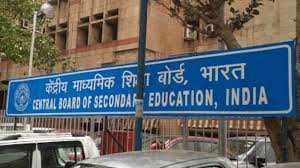
A Group of Parents have approached the Hon’ble Supreme Court by way of Public Interest Litigation seeking cancellation of the CBSE Class 12th Board Examination to be held in July. They have also sought that results of the students be declared on the basis of internal assessment.The parents are concerned with the CBSE notification dated 18.05.2020 that had decided to hold the remaining examination of CBSE Board (Class XII) ranging from 01.07.2020 till 15.07.2020. They have approached SC because of concern of the safety of millions of students who would be exposed to COVID-19 pandemic if they were to appear in the said examinations. It is further mentioned in the Petition that as per the available data, the risk of spread of Covid19 infection will be at its peak in July and hence deciding to hold examination in July, is an unreasonable decision.It has been argued by the parents that “Ensuring proper cleanliness and safety standards as prescribed by the concerned Government in COVID-19 situation in those 15,000 exam centres spreading over length and breadth of the country including rural sectors would not only be risking health and life of children but also would be an exercise in futility and an eyewash.”The Petitioners have also pleaded a case of discriminatory decision by citing that CBSE considering the gravity of this pandemic had cancelled the examinations of Class X and XII for its 250 odd schools which are situated abroad and has adopted criteria in awarding marks on the basis of either Practical exams conducted or internal assessment marks, but the same parameter is not being adopted in India.The Petition also points out practical difficulties in conducting and appearing for the said examination and mentioned that “if an examination centre falls in that Containment Zone, the students would not be permitted to appear in the said proposed exams and if a student has to come from a Containment zone for appearing in the said examination, he/she will not be permitted to move out from the said Containment Zone."The Petition places reliance on recent decisions taken by premier Institutes in the country, like Delhi University, IITs which have cancelled their examination through physical appearance including those of final year students because of the said situation.In addition to seeking cancellation of examination, the parents have also suggested that exams which are already held (majority of the subjects), the average of those marks could be calculated and can be added up with the remaining paper, which marks can be assessed by internal assessment.EduLegaL View:Right to Health is a fundamental right and hence any decision of any State instrumentality, which endangers Right to Health, can be challenged directly before Supreme Court under Article 32 of Constitution of India. Considering the length and breadth of CBSE Schools in the country, it is an uphill task to conduct physical examination, in these situations.Moreover, if due to health concerns, Schools are to open in August, the same constraints would apply even to conducting examinations. Many premier Institutes have decided not to conduct physical examination, hence CBSE should be ventured into exception.# Jan Hai to Jahan HaiRead in Hindi:Also Read:Bar Council of India issues Guidelines for Online Examination in light of Covid-19 PandemicEducation News | EduLegaL | mail@edulegal.in | www.edulegal.org</a>EduLegaL View: A Group of Parents have approached the Hon’ble Supreme Court by way of Public Interest Litigation seeking cancellation of the CBSE Class 12th Board Examination to held in July. They have also sought that results of the students be declared on the basis of internal assessment.
HC directs reimbursement of costs upto total of Rs.2 lakhs to visually impaired students, to procure books in accessible form and/or assistive devices for Examinations
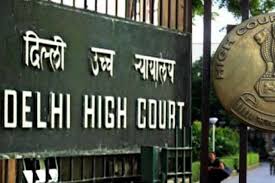
Delhi High Court while hearing a Petition has passed a series of direction, to the Delhi University to address the concerns of the visually impaired students including to reimburse costs upto total of Rs.2 lakhs to visually impaired students, procure any books in accessible form and/or assistive devices.The petition filed by National Federation of Blind had challenged the Delhi University Notification to conduct of open book examination for final semester/term/year students seeking a direction to assess the performance of visually impaired and other students with disabilities, of final semester/term/year for academic session 2019-2020, on the basis of their performance in the previous semester as well as internal assessment, on the same basis as has been decided to be done for other intermediate semester students. It was also sought to permit the visually impaired students to appear in the entrance test for the course/programmes of their choice and grant them admission provisionally for academic session 2020-2021, if their results are not declared by the time the admission process is commenced.Also Read:Online Examinations, Government agrees to address grievances of the blind students, Court however refuses to stay the Examination ProcessIn respect of the entrance test, the Delhi University had informed the Court that the visually impaired students would be permitted to appear in the entrance tests for various programmes for the academic session 2020-2021, subject to declaration of the result of final semester/year/term examination.The Counsel appearing for the National Federation of Blind on being asked from the Court informed that the costs of acquiring text books in accessible form and assistive devices for the visually impaired students of final semester/term/year and who are without the same, will not be more than Rs. 2 lakhs. Considering the amount involved, the Court directed Delhi University costs upto total of Rs.2 lakhs to visually impaired students, procure any books in accessible form and/or assistive devicesThe Court also passed further following directions:As and when a second round of open book examination is held, which as per the University is to be held in September 2020, the visually impaired students, even if have participated in the open book examination commencing from 2 nd July, 2020, would be again entitled to appear in such examination, including to improve their score in the said examination.The visually impaired students may approach their respective institutes/colleges for any assistance required, including provision of reading material/textbooks in accessible form and assistive devices. Upon any student so approaching the Institute/College of DU, the said Institute and/or College is directed to supply the reading material/ textbooks in accessible form and the assistive devices.If any student approaches the respondent No. 2 DU for assistance in arranging a scribe, to enable the visually impaired student to take their examination, DU to also make best efforts for arranging for such scribe/scribes.While keeping the issues raised in the Petition open for final determination, the Court observed that merely because the visually impaired student/s are participating in the open book examination scheduled to commence from 2nd July, 2020, would not disentitle them to the relief if ultimately granted in this petition, as claimed therein, i.e. of assessment on the basis of performance in the earlier semester and /or on the basis of internal assessment.EduLegaL View:We think that while observing the safety parameters and ensuring adequate provision for universal participation of all the categories of students, any decision to continue the education and academic process is legal and logical.It is any case a settled law, that Courts generally do not interfere with decision by academic authorities, unless such decision is arbitrary and devoid of reasons.Having said that our Government needs to take up significant measures for holistic inclusion of our fellow DIVYANGJANS, because we accept it or no, they really feel marginalised even today. Educational Institutions have been mandated to frame Equal Opportunity Policy to encourage social inclusion. However, not all have come up with the same.We have moved some steps, but we have to go far towards their welfare.EduLegaL View: Delhi High Court while hearing a Petition has passed a series of direction
Allahabad HC: Right to Change Name in Educational Records a Fundamental Right of a Student
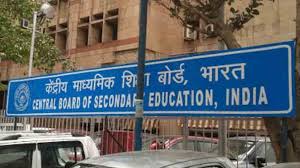
The Allahabad High Court, in a landmark judgment, has held that a student has an inherent fundamental right to change his / her name and also that a student has the right to effect necessary changes in the educational records arising out of such change in the name. The Court, with the passing of this judgment, has brought the said right within the ambit of Article 19(1) (a) and Article 21, of the Constitution of India.The petitioner challenged the hyper technical approach in rejecting the application for change of name on the ground that the particulars of the school records do not reflect the change of name as sought by the petitioner. The CBSE also disregarded the fact that the name of the petitioner had been changed from Rishu Jaiswal to Kabir Jaiswal by following due procedure of publishing a notice in the Gazette of India and inviting objections if any, and also that that the name change had already been effected in the Aadhaar Card and PAN; his plea to execute a name change in the educational certificates was rejected by the CBSE.It was argued here, that issuance of gazette notification without any objections ‘announced to the world in ‘rem’ the intention of the petitioner to change his name; further to which the CBSE had no reason to refute the petitioner’s application.CBSE in response countered the argument stating that permission for a change in the candidate name/mother’s name/father’s name where the request was made either prior or subsequent to the publication of the result of the candidate shall be executed only ‘if it is at variance with the names recorded in the school records’.The Hon’ble High Court relied on the following observation of the Kerala High Court in the case of Kailash Gupta v. CBSE, 2020 SCC Online Ker 1590Name is something very personal to an individual. Name is an expression of one's individuality, one's identity and one's uniqueness. Name is the manner in which an individual expresses himself to the world at large. It is the foundation on which he moves around in a civil society. In a democracy, free expression of one's name in the manner he prefers is a facet of individual right. In Our Country, to have a name and to express the same in the manner he wishes, is certainly a part of right to freedom of speech and expression under Article 19 (1) (a) as well as a part of the right to liberty under Article 21 of the Constitution of India. State or its instrumentalities cannot stand in the way of use of any name preferred by an individual or for any change of name into one of his choice except to the extent prescribed under Article 19(2) or by a law which is just, fair and reasonable.The Court finally agreed with an earlier judgement of other High Courts that the individual ‘name’ is a facet of right of expression, which is guaranteed under Article 19(1) (a) read with Article 21 of the Constitution of India and held that:The freedom of expression as guaranteed under Article 19(1) (a) includes within its sweep all forms of expressions and name in the present world is clearly a strong expression.The Court also proceeded to decide upon another important aspect that whether the regulations issued by the CBSE, which prohibits the change of name except in the scenario as emphasized under Regulation 69.1 (i) and 69.1 (ii) can be used to deny the rights enshrined under Article 19 (1) (a) of the Constitution of India.The Court referring to the constitutional position that the right enshrined under Article 19(1) (a) of the Constitution of India are fundamental rights and can be taken away or restricted only in accordance with the procedure prescribed under Article 19(2) of the Constitution of India, after examination of the Rules of CBSE, its legal character came to the conclusion that the Rules as framed by the CBSE do not have any statutory flavour and cannot be considered to be the ‘law’ as required for placing reasonable restrictions on the rights enshrined under Article 19(1)(a), in terms of Article 19(2) of the Constitution of India.Reconciling the undue hardship that the student and CBSE may face due to different name in different records, as the certificate issued by the earlier name, has already been issued to the petitioner, the Court directed CBSE to issue a fresh certificate petitioner as “Kabir Jaiswal alisa/nee Rishu Jaiswal”.EduLegal View:What is in a name? says the popular Shakespearean Quote. Although in a different context, the Allahabad High Court has answered it emphatically; the name is now a fundamental right of an individual in India. This is again in continuation of the series of judicially declared fundamental rights, which though do not directly find presence in the Constitution but have been so interpreted by courts to be within the scope of one or the other fundamental rights.Another critical issue, which emerges from this Judgement is that the government should now consider giving CBSE a statutory character. This has been long due and considering the extensive presence of CBSE schools in India, it is time that this requirement is given due importance.Ravi Bhardwaj | mail@edulegal.in | EduLegaL View: The Allahabad High Court, in a landmark judgment, has held that a student has an inherent fundamental right to change his / her name and to effect necessary changes in the educational records arising out of such change in the name.
Education Sector and Budget 2021-22
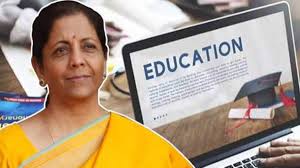
February 2021, Mrs. Nirmala Sitharaman, Minister of Finance, India presented the annual budget and proposed reforms for the fiscal year 2021-2022.To enhance and promote the sector of education visible measures have been undertaken. Initiatives include proposal to increase the limit of annual receipts of educational institutions — existing solely for educational purposes — from the current Rs. 1 crore to Rs. 5 crore for income tax exemption (u/s.10 of Income Tax Act), allocation of Rs. 99,300 crore for the sector of education and Rs. 3000 crore for skill development.Significant ProposalsA: School Education The National Education Policy 2020 (NEP 2020), approved by the Union Cabinet of India on 29th July 2020, garnered a beneficial reception will be furthered through the budget 2021. Over 15,000 schools will be enhanced in effectiveness by implementing all the NEP components. These schools are to be centres of academic excellence in their region and shall guide other schools towards adopting the NEP policies. 100 Sainik Schools in partnership with NGO’s, private and public schools is additionally proposed.The funds for Kendriya Vidyalayas (KVs) saw an increase as the KVs have been issued Rs 6,800 crore for the upcoming financial year as compared to Rs 5,516 crore last year. The budget allocation to Navodaya Vidyalayas has been increased by Rs 500 crore. Last year, Rs 3,300 crore was allocated to Navodaya Vidyalayas, while for this year, the funds have been raised to Rs 3,800 crore.B: Higher EducationThe budget provisions in higher education proposed to set up a ‘Higher Education Commission of India’ as an umbrella body governing the overall higher education, excluding medical and legal education with four independent bodies for standard-setting, accreditation, regulation and funding. As per NEP 2020, these bodies are categorized into- General Education Council (GEC), and National Accreditation Council (NAC), National Higher Education Regulatory Council (NHERC) and Higher Education Grants Council (HEGC). Government of India has supported many institutions, universities and colleges. For instance, Hyderabad , has about 40 such major institutions. In 9 such cities, we will create formal umbrella structures so that these institutions can have better synergy, while also retaining their internal autonomy.Additionally, to ensure accessibility of higher education in Ladakh, the government would establish a Central University in Leh.C: Scheduled Castes & Tribal WelfareThe Post Matric Scholarship Scheme is to receive a face-lift through the Central assistance of Rs. 35,219 crore for 6-yrs till 2025-2026 is proposed for the welfare of scheduled caste students. The proposal anticipated to benefit 4 crore scheduled caste students. Setting up schools in the hilly regions offering ease of access is additionally proposed. A target establishing 750 Eklavya model residential schools in our tribal areas has been set. to increase the unit cost of each such school from 20 crores to 38 crores, and for hilly and difficult areas, to `48 crores.D: Skill Development & TrainingThe Government proposes to realign the National Apprenticeship Training Scheme (NATS) for providing post-education apprenticeship, training of graduates and diploma holders in the field of engineering by amending the Apprenticeship Act. This is intended to enhance apprenticeship opportunities for the youth of the nation. It has been decided to allot over Rs. 3 crore towards this initiative.Alongside, an initiative in partnership with the United Arab Emirates (UAE) to significantly advance skill-based education, assessment, and certification, accompanied by the deployment of certified workforce is proposed. Measures similar to the Training Inter Training Programme (TITP) between India and Japan — to facilitate the transfer of Japanese industrial and vocational skills, technique, and knowledge — would be initiated and established with many more countries.E: Research & DevelopmentThe government has proposed to provide 50,000 crores to the National Research Foundation (NRF) to be disbursed over 5 years. The research system of the country is to be strengthened with a particular focus on designated national-priority areas. Hope to reduce compliance burden on small charitable trusts running educational institutions and hospitals. So far, there is a blanket exemption to such entities, whose annual receipt does not exceed 1 crore. It is now proposed to increase this amount to 5 crore.Other provisions proposed include: establishment of National Professional Standards for Teachers (NPST) for enhancing capabilities of teachers; developing of toy-based learning to promote innovative and joyful learning experience; to assist and support the Centre and States/Union Territories, setting up of National Digital Educational Architecture (NDEAR); standardization of Indian Sign language nationally towards upliftment of hearing impaired children; inclusion of senior and retired teachers in a knowledge-sharing role for employed teachers, identification of student potential alongside development of cognitive levels; tackling of student anxiety reforms to be introduced by CBSE from 2022-23; and promotion of international higher education by introducing concepts of dual degrees, joint degrees and twinning arrangements. It is enabled to train 56 lakh school teachers through the National Initiative for School Heads and Teachers for Holistic Advancement (NISTHA).Establishment of National Initiative for School Heads and Teachers shall train teachers to be digitally equipped and accomplished; an initiative that began during COVID-19 training over 30 lakh elementary school teachers digitally.F: Mid Day Meal Scheme:The mid-day meal scheme saw an increase of Rs 500 crore as the total allocation has been raised to Rs 11,500 crore from Rs 11,000 last year.To strengthen nutrition, Mission Poshan 2.0 will be formed by merging the supplementary Nutrition Programme with Poshan Abhiyan. The SNP is delivered through Anganwadis, or early childhood care and education centres. 4 National Institutes of Biology to be established.EduLegal View:Overall the budget is good for the education sector, but it could have been better. There was no rationale for reducing the budget allocation for key sectors. Also, there is no substantive support or plan laid down to encourage digital infrastructure in education sector. It would have been encouraging if the Government would have created separate fund of NEP, but that is not the case.Contributions by:Ankitha Subramanya [Research Interns]EduLegaL View: Mrs. Nirmala Sitharaman, Minister of Finance, India presented the annual budget and proposed reforms for the fiscal year 2021-2022. To enhance and promote the sector of education visible measures have been undertaken in the Budget
Competition Commission of India: BCI Not An Enterprise
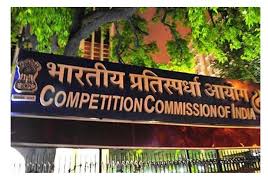
Competition Commission of India, in a recent judgement, has ruled that that the Bar Council of India (BCI) is not an enterprise.The judgement came further to a complaint filed with Competition Commission of India alleging that the Bar Council of India was indulging in an abuse of its dominant position through Clause 28 of the Rules of Legal Education, 2008 prescribing age limitation for entry into legal education, that reads as under:Clause [28] - Age on Admission:(a) Subject to the condition stipulated by a university on this behalf and the high degree of professional commitment required, the maximum age for seeking admission into a stream of integrated Bachelor of Law degree program, is limited to twenty years in case of general category of applicants and to twenty-two years in case of applicants from SC, ST and other Backward Communities. (b) Subject to the condition stipulated by a University, and the general social condition of the applicants seeking legal education belatedly, the maximum age for seeking admission into a stream of Three Year Bachelor Degree Course in Law, is limited to thirty years with right of the University to give concession of five further years for the applicant belonging to SC or ST or any other Backward community.Mr. Thupili Raveendra Babu, a 52-year-old executive engineer in the Central Public Works Department filed a complaint stating his intent to pursue legal education post his retirement but was barred from it owing to Clause 28 of the Rules of Legal Education, 2008, which banned General Category above 30 years of age from pursuing a legal education. The complainant charged that the BCI, in abuse of its predominant position, exercised arbitrary control over the legal education and practice in India and particularly through the Clause 28 of barring applicants over 30 years from pursuing law, was contradicting Section 4 of the Competition Act, 2002.Elaborating on this, the complainant stated that the BCI members in the veil of Clause 28 intended to reduce competition to its voters and consequently obstruct the legal profession. Accordingly, the declaration of Clause 28 as illicit and void ab initio alongside a punishment to be imposed on BCI for the infringement of Section 4 of the Act.The Complainant also for interim directions under Section 33 of the Act for suspending the impugned Clause 28. He submitted that allegedly prima facie case of violation of Section 4 of the Act is established against the BCI and the balance of convenience lies in his favour. He further states that irreparable loss and harm would be caused to him and many other legal aspirants for pursuing legal education in India, if the operation of Clause 28 is not suspended.In order to adjudicate the issue effectively, the Commission thought it fit to examine, the status of the BCI as an enterprise within the contours of the provisions of Section 2(h) of the Act, which defines the term enterprise. After recording the various provisions of the Advocates and the functions of Bar Council, the Commission came to the conclusion that BCI as an Institution is discharging functions, which are regulatory in nature in respect of the legal profession and not engaged in any activity relating to provision of any kind of services.The Commission also referred to a prior decision in Case No. 39 of 2014, In re: Dilip Modwil and Insurance Regulatory and Development Authority (IRDAI), wherein the Commission had the occasion to examine, the status of IRDAI as an ‘enterprise’ under the Act. The Commission had observed that any entity can qualify within the definition of the term ‘enterprise’ if it is engaged in any activity which is relatable to the economic and commercial activities specified therein. It was further observed that regulatory functions discharged by a body are not per se amenable to the jurisdiction of the Commission.The Commission finally observed that:In the present matter, when the BCI appears to be discharging its regulatory functions, it cannot be said to be an ‘enterprise’ within the meaning of Section 2(h) of the Act and consequently, the allegations made in relation to discharge of such functions which appears to be non-economic in nature, may not merit an examination within the provisions of Section 4 of the Act.While addressing whether or not there is a prima facie case of violation of the respective section of the Act, the Commission observed that, there exists no prima facie case under the arrangements of Section 4 of the Act and the data recorded is directed to be closed forthwith against the Opposite Parties under Section 26(2) of the Act. Thus, no case for an award for relief(s) as looked for under Section 33 of the Act emerges and thus it was dismissed.The complaint against the BCI was dismissed on no grounds for a prima facie case of violation of Section 4 of the Competition Act, 2002.| Research Intern | EduLegaL | mail@edulegal.in EduLegaL View: The judgement came further to a complaint filed with Competition Commission of India alleging that the Bar Council of India was indulging in an abuse of its dominant position through Clause 28 of the Rules of Legal Education, 2008 prescribing age limitation for entry into legal education.
SC Upholds AICTE Regulations: PhD Mandatory for Post of Assistant Professor in Technical Institutions
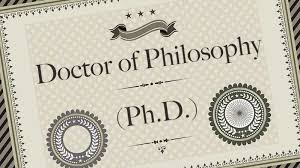
February 2021, upheld the decision of the Kerala High Court pronouncing the mandatory requirement of PhD for the post of Assistant Professor as per the AICTE Regulations particularly for any appointments made after 5th March, 2010.A three-judge bench of Justice Sanjay Kishan Kaul, Justice Dinesh Maheshwari and Justice Hrishikesh Roy held:“We are in agreement with the view that the notification dated 18.02.2003 granting seven years to acquire PhD Degree for the right to hold the post of Associate Professors (re-designed as Assistant Professors) would come to an end in 2010 and thus persons who acquire the PhD Degree on a subsequent date will only be eligible for consideration from the date when they acquire PhD Degree.”The Special Rules for the Technical Education Service, 1967 (the State Rules) amendment of 2003, declared PhD Degree to be a mandatory qualification for the posts of Principal, Professor and Assistant Professor.However, later, the AICTE issued a notification bearing F. No. FD/PSSC/ Notifications/2002/1 dated 18th February 2003, through which, the Council introduced relaxations by stating that persons with First Class Degree at Masters Level in the appropriate branch of Engineering/ Technology with 5 years’ experience in Teaching/ Industry/ Research at the level of lecturer may also be appointed as Assistant Professor. This relaxation was made subject to the condition that these candidates must obtain a PhD within a period of 7 years from the date of appointment as Assistant Professor.Soon after the above notification was published, the Kerala government amended the State Rules by incorporating rules 6A(i) and 6A(ii) which reiterated that candidates have to acquire PhD within 7 years of appointment to the post, in line with the AICTE notification.6A. Exemption from qualification (i) Candidates appointed as Lecturer in Engineering Colleges in the Technical Education Department on or before the 27th March 1990, who have completed 45 years of age on the date of notification published for filling up the posts of Professor, Joint Director (Engineering College Stream) and Director of Technical Education as the case may be are exempted from acquiring Ph. D Degree for eligibility for the above posts. (ii) Candidates applying for the post of Assistant Professor are exempted from possessing Ph.D. Degree but they have to acquire Ph.D Degree within seven years of the appointment to the post of Assistant Professor as stipulated by the All India Council for Technical Education."On 5th March 2010, the AICTE issued the “Pay Scales, Service Conditions and Qualifications for the Teachers and Other Academic Staff in Technical Institutions Degree Regulations, 2010" which mandated the qualification of PhD for the posts of principals, professors and associate professors (re-designated post of Assistant Professor) thereby revoking the relaxation granted under the 2003 AICTE notification.Twelve petitions had been filed in the Kerala High Court challenging the order of the Kerala Administrative Tribunal dated 5th March 2020. These petitions were filed by Assistant professors due to fear that their appointments would be cancelled as they do not hold PhD Degrees.The primary issue, in this case, was whether the PhD qualification requirement for the post of Assistant Professor is mandatory.Finally, on 3rd December, 2020 the Kerala High Court gave its judgment stating that the State Rules granting 7 years' time to acquire the PhD qualification was not applicable after 5th March 2010 — the date on which the revised AICTE Regulations were issued revoking the relaxation granted under the 2003 AICTE notification.It was held that the State Rules are subject to AICTE Regulations concerning qualifications, the procedure of appointment, among others and that the State Rules would be void to the extent that they are repugnant to the Central Act / Regulations, in this case, the AICTE RegulationsIn conclusion, the mandatory PhD qualification for the post of Assistant Professor was confirmed by the Kerala HC and the same was upheld by the Supreme Court. Research Intern | EduLegaLEduLegal View:Well, nothing to do about the judgement, but why does our education system heavily rely on degrees for teaching qualification. A good teacher necessarily may not be a Ph.D, but then does it mean that we should show this Rule Book to him and deprive students of quality teaching. Similarly, a Ph.D. may not be a good teacher, but an Institute has no choice to but to appoint him to remain a compliant Institution. We all hope that when NEP is being implemented something will be done. Let us move to a system, which is more qualitative.Ravi Bhardwaj | EduLegaL | mail@edulegal.inEduLegaL View: The Supreme Court, in an order dated 2nd February 2021, upheld the decision of the Kerala High Court pronouncing the mandatory requirement of PhD for the post of Assistant Professor as per the AICTE Regulations particularly for any appointments made after 5th March, 2010.
Kerala HC Establishes PWD Students Right to Higher Education
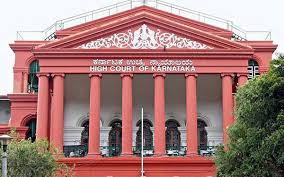
The Kerala High Court, in a recent judgment, Ashwathy v. Union of India and Ors., held that Persons with Disabilities (PwD) have a right not only to basic education but also to higher education. This judgment came as a response to a case filed by a woman suffering from cerebral palsy who was rejected admission to the MBBS course. Hon'ble Justice PB Suresh Kumar, passed the much-lauded judgment.Hon'ble Justice PB Suresh Kumar said:If a disabled person desires to pursue his studies in a particular field, and if he is capable and competent to do so, his disability shall not stand in the way of the said learning process.”Ms. Ashwathy, the petitioner filed a writ when she was denied admission to the MBBS course in a college at Manjeri citing her cerebral palsy and the consequent disability as the reason.The decision of college came as the defying of the Rights of Persons with Disabilities Act, 2016, particularly Section 32(1) of the said Act that reads:[32]. Reservation in higher educational institutions. — (1) All Government institutions of higher education and other higher education institutions receiving aid from the Government shall reserve not less than five per cent seats for persons with benchmark disabilities.In addition to this law, the Central Government on the admission to the MBBS course of students with benchmark disabilities laid down guidelines that state that a student may be admitted to the course without any objection so long as they do not have a disability of more than 80%.To assess the disability percentage, the Court took the assistance of the methods of Manual Ability Classification System (MACS) and Gross Motor Function Classification System (GMFCS). These assessment methods led the court to the conclusion that the student was in fact:a. A person who could handle and carry out most tasks like a regular person, albeit with reduced speed and quality.b. A person who could very well climb stairs with railings for support but had a problem with uneven surfaces and could not readily run or jump.In the case of the petitioner-student, her disability was examined by the court and gauged to be 63.3% which was quite below the upper mark according to the guidelines.The Court observed:It is necessary to mention in the context of this case that like any other citizen, persons with disability have also the right to get not only the basic education but also higher education. Every person shall be presumed to be capable of learning, and denial of opportunity to pursue a course which one seeks to undertake on the ground of disability would amount to denial of opportunity to learn, and would be discriminatory."The National Medical Commission, however, raised an objection expressing their apprehension as to how Ms. Ashwathy would fulfil her duties as a doctor.The Hon'ble Court in response said:True, the doctors need to physically examine the patients, but all candidates pursuing medical courses are not becoming practicing doctors. There are several other avenues also for candidates who are pursuing medical courses such as teaching, research etc. other than practicing in surgical and clinical faculties which persons who do not have even the upper limbs are successfully doing. That apart, it cannot be said that a person who is not able to physically examine a patient cannot be a doctor, for having regard to the technological advancements achieved in the field of medicine especially during the last couple of decades, there would be umpteen replacements for physical examination in the years to come.” In conclusion and further to due assessments and scrutiny, the court found the student to be eligible to pursue her course without any hindrances. The Honorable court also directed the respective educational institution to ensure a disabled-friendly facility within the institution in accordance with the provisions of the Rights of Persons with Disabilities Act, 2016.Angel Nair | Research Intern | EduLegaLEduLegal View:Nothing more apt than what the Court said and I reiterate: “As far as persons with disability are concerned, if only they are given education, they will be able to lead an independent, economically self-sufficient, productive and fully participatory life.”Having said that our Government needs to take up significant measures for holistic inclusion of our fellow DIVYANGJANS, because we accept it or no, they really feel marginalised even today. Educational Institutions have been mandated to frame Equal Opportunity Policy to encourage social inclusion. However, not all have come up with the same.We have moved some steps, but we have to go far towards their welfare.Ravi Bhardwaj | EduLegaL | mail@edulegal.inEduLegaL View: The Kerala High Court, in a recent judgment, Ashwathy v. Union of India and Ors., held that Persons with Disabilities (PwD) have a right not only to basic education but also to higher education. This judgment came as a response to a case filed by a woman suffering from cerebral palsy who was rejected admission to the MBBS course.
SC: Migration of MBBS Students from Unrecognized Colleges to Recognized Colleges Impermissible

The Supreme Court, in an order, held that the migration of undergraduate medical student from an unrecognized medical college to a recognized medical college is not permitted as per the Medical Council of India (MCI) Regulations on Graduate Medical Education, 1997.A writ petition was filed in the Rajasthan High Court challenging the proceeding of the Board of Governors dated 25th October 2019, whereby the migration request was rejected on the grounds that it was not permitted under its Regulations.On 9th January 2020, the Rajasthan High Court allowed the petition and directed the MCI to permit the said migration. The learned Single Judge held the rejection of the request as discriminatory as the benefit of relaxation of the Regulations had been given to one Daksh Sharma and other candidates on a previous occasion.Later, the MCI filed an appeal with the Division Bench of the High Court which was dismissed. The Division Bench held that the term “migration” in Regulation 6(2) is not limited to Schedule- I of the MCI Act, 1956 and that its scope is much wider. It was also held that to consider migration applications, all institutions allowed to impart medical education should be deemed to be recognized colleges.The MCI consequently approached the Supreme Court. It was pointed out by the appellant that Regulation 6(3)[1] mandates that a candidates can apply for migration, only after qualifying the first professional MBBS examination and that migration during the clinical course of study was not allowed. Whereas, the respondent is in the 2nd MBBS (3rd year) and the clinical courses had already begun.The Cuncil submitted that migration from Private to Government College is not permitted. Moreover, the respondent’s marks in the NEET (UG) 2018 examination were lower than the cut-off for admission in the college to which migration was sought.Finally, the Supreme Court held that the term “Migration” had to be read with reference to the Regulation and that migration cannot be allowed contrary to the Regulations. The Court observed as under:The interpretation of the Regulation 6(2) by the High Court is patently erroneous. The Regulation clearly lays down a restriction of migration from an unrecognised college to a recognised college. Regulation 6(2) provides that migration is permissible only if both the Colleges are recognised u/s 11(2) of the Indian Medical Council Act, 1956In conclusion, the migration of MBBS student is permissible only if both the medical colleges are recognized by the Central Government under the Indian Medical Council Act, 1956.EduLegal View: Why does such matter even reach Supreme Court? What a waste of precious judicial time? With all due respect, how the two Courts below, the Ld. Single Judge and the Division Bench of a High Court did not consider the aspect of migration between a recognized and an unrecognized institution. Such migrations / transfers will only add to existing deficiencies in medical education sector. The Hon’ble Supreme Court has done a lot to regulate the medical education sector and it is expected that the Courts below should also exercise same judicial restraints in curbing practices, which are not in conformity with the Regulations.Ravi Bhardwaj | EduLegaL | mail@edulegal.inEduLegaL View: The Supreme Court, in an order, held that the migration of undergraduate medical student from an unrecognized medical college to a recognized medical college is not permitted as per the Medical Council of India (MCI) Regulations on Graduate Medical Education, 1997.
UGC extends Last Date to Apply for National Fellowship for Persons with Disabilities (NFPWD)
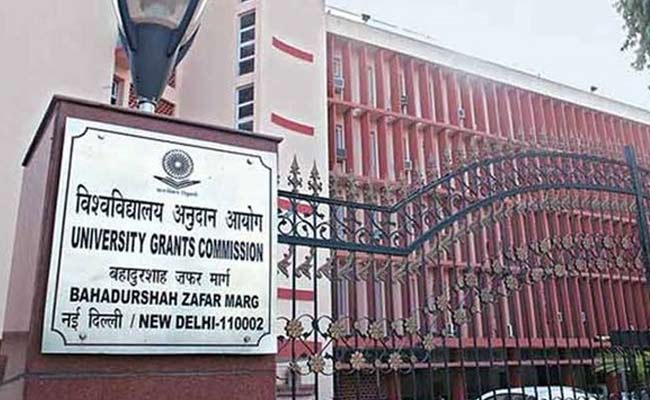
University Grants Commission (UGC) on behalf of the Department of Empowerment of Persons with Disabilities (DEPwD), Ministry of Social Justice and Environment issued an invitation for applications for the National Fellowship for Persons with Disabilities from all the eligible candidates for the academic year 2020-2021. Per the notification, the deadline for the applications was set to be 17th of January, 2021, which has now been extended to the 15th of February, 2021.This scheme from the DEPwD aims at granting fellowships to all the candidates with disabilities, who fall under the purview of the Persons with Disabilities (Equal Opportunities, Protection of Rights and Full Participation) Act, 1995. For any aspiring candidate to avail of the benefits under the said act, they must first obtain a certificate of disability from the relevant medical authority for the purpose.Selection Procedure:Applicants who wish to apply for the fellowship, can do so on the UGC website on or before 15th of February, 2021, at: https://www.ugc.ac.in/ugc.schemesIt is pertinent to note that all selections for the fellowship will be made solely by the UGC, while the communications regarding the same with the candidates will be done by the DEPwD, Ministry of Social Justice and Empowerment.This scheme of the DEPwD holds under its ambit all the Universities and Institutions which are recognized by the UGC or GOI. However, the scheme is available only to the students of any such universities and institutions and not for the employees, even if they are on an Extra Ordinary Leave (EOL) or a study leave.Fellowship Provisions: The notification mentions different courses and their timelines per the duration and payment of the fellowship. Courses including M. Phil to be completed within 2 years while Ph. D. for 5 years and a course with both M. Phil and Ph. D must be completed in 5 years or until the submission of thesis, whichever happens to be earlier. Depending on the position of the fellowship and the stream of study and research, the amount varies from Rs. 2000/- per month to Rs. 35,000/- per month. There is also a provision for an awardee to have an extension of tenure for up to 3 years, if their initial research work of 2 years is found to be satisfactory.The fellowship is set to commence from the 1st of April, 2020 or the actual date of admission or registration of the candidate for the courses, whichever happens to be later.While the fellowship funds allows the selected candidates to draw their hostel accommodation fees for staying in the institution’s hostel, it does not include other charges that cover mess, water, electricity, and the likes. If there is no availability of a hostel, the institution itself may provide the Fellow with a suitable accommodation. Such Fellows are allowed to draw the House-Rent Allowance (HRA) subject to the ceiling of HRA set by the GOI. But the ones with hostel accommodation do not have the same privilege. Should a Fellow not choose any of the two options but want to choose accommodation of their own preference, their HRA would be given to them per the city categorization by the GOI.The medical facilities of the University or Institutions will be made available to the candidates albeit no other medical costs would be borne by the funds of the fellowship.The notification also provides for the candidates to avail maximum leaves of 30 days in one year excluding public holidays, but no exclusive vacations like the summer or winter vacations. Should there also be candidates requiring maternity or paternity leaves during the duration of their fellowship, they would be paid the full rates of the fellowship.If a candidate gets an opportunity to or is required to travel abroad with respect to their research work, or gets a teaching assignment concerning the same during the tenure of their fellowship, the fellow is entitled to an Academic Leave of a maximum of one year. However, the expenditure for such a travel cannot be withdrawn from the funds of the fellowship.The payment of fellowship will be done only on the bank account of the beneficiaries on Direct Benefit Transfer (DBT) mode. For this, the document of identity is the Aadhar Card(Section 7, Aadhar Act, 2016) per the notification number 428, issued by the Ministry of Social Justice in 2017.Award Cancellation:A fellow may be denied the fellowship or a given fellowship may be cancelled if the fellow,a. Misconductsb. Displays an unsatisfactory level of progress in their research workc. Is employed during the tenure of their research in M. Phil or Ph. Dd. Is found to be ineligible for the award later after being deemed eligible prima facie.e. Already has the benefit of another fellowship or a scholarship from other sources.f. Is found to have furnished any wrong information or partook in a fraudulent activity.Accordingly, students are urged to submit their applications in time, on or before 15th February 2021.EduLegaL | mail@edulegal.in EduLegaL View: UGC has issued an invitation for applications for the National Fellowship for Persons with Disabilities from all the eligible candidates for the academic year 2020-2021. Per the notification, the deadline for the applications was set to be 17th of January, 2021, which has now been extended to the 15th of February, 2021
Kerala HC: Establish Campus Police Units in Educational Institutions to Curb Drug Abuse

The Kerala High Court bench comprising of Justice S Manikumar and Justice AM Shafique decreed numerous directions a suo motu case taken up by the Kerala HC against the rampantly rising drug abuse observed in the youth particularly in schools and colleges in the state. The bench while directing the State Government to take necessary measures in this judgment with the State of Kerala and 6 other parties being the respondents, said: “Establish campus police units since law enforcement agencies are not conducting regular checking inside the educational institutions.”Mr. N. Ramachandran, a retired IPS officer and former District Police Chief of Kottayam submitted a representation to the HC on the overwhelming rise in cases of drug abuse and illegal trade, especially within educational institutions.Taking immediate cognizance, the Kerala HC registered it as a suo motu case and ordered an enquiry into it. The Court further sought classified investigation reports from top-ranking officials in the state after gauging the gravity of the issue.A report of the State Special Branch on drug abuse in schools and colleges exposed the gravity of drug abuse amongst students.Upon further inspection and statistical data analysis on the use of drugs, the court observed that the most common drugs used by college students either to sell or consume are marijuana, synthetic drugs, and hashish. The cases which come to be reported and acted upon, almost always have only less than even 1 kg of marijuana, which by law is a bailable offence — a reason why the students and peddlers continue to remain undeterred from indulging in its trade and consumption. However, the use of drugs, as observed, has not been limited to these but also extended to the students inhaling strong-smelling substances including whiteners, varnish, petrol, and ink — substances that are not covered in the ambit of the NDPS Act. Consequently, no action is taken in cases like these.Scrutinizing the situation, the Court said:“On enquiry, it came to understand that around 400 institutions in the State are affected by drug abuse and out of the educational institutions, 74.12% are schools, 20.89% are colleges and professional institutions, and 4.97% are other institutions viz., ITI, Polytechnics etc.”The court then went on to reiterate the three main strategies used to combat the issue of drug abuse:a. Mass media campaigns to spread awareness about the consequences of drug abuse b. Education of children against the dangers of drugs c. Targeting of vulnerable groups likely to be most affected by substance abuse, and raising awareness among themConcerning the efforts undertaken, the court highlighted and emphasized how the State Excise division of Kerala is completing school-based awareness programs under the Vimukthi Mission Project. The State Police likewise through its Student Police Cadet Initiative and by way of ‘School Protection Groups’ conducts mindfulness programs among the younger students about the hazards of drug abuse and consumption of liquor. Notwithstanding the sincere endeavours of these organizations, the pace of unlawful drug dealing and misuse is unbridled and extensive almost rising to a threatening extent.Alarmed at the situation the court directed:“The State Police with its wide expertise in law enforcement and access to vital intelligence, has a pivotal role in controlling the sale and abuse of drugs and psychotropic substances among school children and youngsters. The community-centered initiatives like Student Protection Group (SPG) etc., are proved to be highly effective in community based preventive efforts against tobacco, alcohol and substance use. But, as of now, the activities of the SPG programme are confined to a very small proportion of the schools in the State. The Government shall seriously look into the matter and take appropriate steps to extend the SPG project-initiative to all the educational institutions, including the unaided schools and colleges.”Further, to counter the situation, the court proceeded to lay down certain measures to tackle the problem of drug trade and consumption in schools and colleges. The Honorable bench directed the state government to adopt the following measures:Local police shall pay special attention to areas surrounding schools and colleges in their efforts to tackle drug peddlers.Schools and colleges be encouraged to look out for peddlers in their vicinity and report them to police. Schools and colleges be encouraged to conduct surveys (possibly anonymous) to assess the levels of drug addiction among their students, and if addicted students can be identified, to talk to their parents or wards to find medical help to cure their addiction.The Central and State Education Authorities to include a mandatory and comprehensive chapter on drug abuse and illicit trafficking and its socio-economic costs to self, society, and the country, in the syllabus for 10+1 and 10+2 students.Schools and colleges be encouraged to constitute the Anti-Drug Club to promote a drug free life among its members and also in the institution.The court also mentioned that guidelines will be formulated and given to the educational institutions to help them carry out their responsibilities of keeping the campuses free from drugs. The adoption of the Campus Police Units methods has been suggested as a way of enabling the excise personnel to effectively enforce the NDPS Act, 1985, in all the educational institutions. The court also directed the establishment of rehab mechanisms with the universities and schools and the parents of the drug abuse victim-students to work in co-operation and thus eliminate the issue of addiction in the affected students.The court in this judgment has stressed on organising awareness campaigns and encouraging preventive education as the most cost-effective and efficient ways of curbing the problem of substance abuse amongst students in schools and colleges.Concluding the matter, the court directed the authorities to strictly comply with and follow the directions and measures laid down, “in letter and spirit” within 3 months from the date of receipt of the judgment.| Research Intern | EduLegaL | mail@edulegal.inEduLegaL View:The matter of drug abuse in educational institutions is of grave concern as it involves students, who, in their formative years are extremely impressionable and are easily influenced by bad habits that they develop which may stay with them for life, due to which there is an added responsibility of educational institutions nipping such habits in the bud.Such ill habits cultivated at such an early age destroy the very fabric of the student as they may find it extremely difficult to keep such habits under control and often end up compromising on their priorities such as their academics, extra-curricular activities etc.I think strict Regulations should be made by UGC in this regard. The step taken by the High Court is really encouraging but it should also be ensured that it is implemented in full force.Ravi Bhardwaj | EduLegaL | mail@edulegal.inEduLegaL View:The Kerala High Court bench comprising of Justice S Manikumar and Justice AM Shafique decreed numerous directions a suo motu case taken up by the Kerala HC against the rampantly rising drug abuse observed in the youth particularly in schools and colleges in the state.
Draft Patents (Amendment) Rules, 2021 Supports Education Sector, Discriminates between Aided & Unaided Educational Institution
 Rules, 2021 Supports.jpg)
The Ministry of Commerce and Industry’s Department for Promotion of Industry and Internal Trade published the Draft Patents (Amendment) Rules, 2021 proposing amendments to the Patent Rules, 2003. The Government has invited objections and/or suggestions from the stakeholders for consideration.The Draft though appears primarily to boost intellectual property and innovation environment in Educational Institutions, as it tends to provide benefits to the educational institutions in terms of fees and also have to right of expedited processing of application. However, at the same it discriminates between an aided and unaided educational institution.It proposes to add definition of educational Institution, which is as under:“— institution established by a Central, Provincial or State Act, which is owned or controlled by the Government, and is wholly or substantially financed by the Government.” Here, the term “substantially financed” has the same meaning as in the Explanation to sec 14(1) of the Comptroller and Auditor General’s (Duties, Powers and Conditions of Service) Act, 1971 according to which, a body or authority would be deemed to be substantially financed by the Government if not less than Rs. 25 lakhs grant or loan is given to such body or authority from Government Funds.In order to ensure that educational Institution is an eligible educational Institution and can claim benefit of fees, the education institution must declare by filing Form-28 along with the required documentary evidence.Further, the draft Rules also proposes to ease the burden on the educational Institution, in case of partial or complete transfer of application by educational Institution to person other than a natural person, start-up, small entity or eligible educational institution. In such case, difference of fees between the fees charged from the eligible educational institution and the fees chargeable from the transferee shall be paid by the new applicant along with the request for transfer.Grant of Patent and time consumed in grant of patent has always been a time-consuming affair in our country. In this world of competitive innovation, time is essence in statutory creation of right. The Draft Rule therefor vests educational Institution with the right for filing a request for expedited examination in Form-18 A along with prescribed fee.As mentioned above, one of the biggest reliefs proposed in this Draft Rules is benefit in concession of fees. The Schedule of Fees as appearing in the original rules has been reduced for the eligible educational institution for various activities by 80% of the prescribed fees.Contributions by:Ankitha Subramanya | Ritesh Samartha Research Interns, EduLegaLEduLegaL View:The proposed amendment rules certainly are an effective measure to innovation and invention culture in educational institutions. But why this discrimination between aided and unaided educational institutions.Is innovation and invention culture only required to be promoted in government / government financed educational Institution? Such culture and environment present in any educational institutions should be supported, irrespective of their character. “Inclusivity”, one of the pivotal principles of governance should not be restricted to social sector only but to extend to all others.Ravi Bhardwaj | EduLegaL | mail@edulegal.inEduLegaL View: The Ministry of Commerce and Industry’s Department for Promotion of Industry and Internal Trade published the Draft Patents (Amendment) Rules, 2021 proposing amendments to the Patent Rules, 2003. The Government has invited objections and/or suggestions from the stakeholders for consideration.
SC: Equivalence of Subject, Standard & Scope Mandatory for Admission to MBBS, Not Academic Qualifications

The Supreme Court, in Kaloji Narayana Rao University of Health Sciences vs. Srikeerti Reddi Pingle & Ors., has declared that a medical aspirant essentially requires to have secondary level knowledge in biology for pursuing MBBS.The appellant, Kaloji Narayana Rao University of Health Sciences denied admission to the aspirant on the grounds that the respondent produced no material submissions that established her background of pursuing a course in Biological Sciences during the qualifying examination. The applicant, in response, filed a writ with the Telangana High Court that held the denial of admission illegal.The appellant-university further went on to move the Supreme Court laying emphasis on the Regulation 4(2) of the Medical Council of India Regulations (MCI) on Graduate Medical Education, that asserts the eligibility of a student for pursuing a degree in medicine.The Court on reading of Regulation 4[2] concluded that it lays stress on certain common features: (a) that the candidate should have passed the examination with Physics, Chemistry and Biology/Bio-technology; (b) the candidate should have undergone practical tests in those science subjects (c) the candidate should have studied English and, lastly, (d) that marks obtained in Mathematics would not be taken into consideration for deciding admission to the MBBS course.The Court thus refused to consider the letters submitted by the student which certified that the qualification obtained by the student was equivalent to 10+2 in India and that Advanced Placement (AP) course undertaken by her is equivalent to a first-year degree qualification in Biology. The Court found that there is rationale in there is a rationale and compelling logic on the part of the University to say that the candidate should have studied biology or biological sciences and observed as under:A careful reading of the said provision discloses that the MCI emphasized that the candidate should have undergone study at the 10+2 stage, (or in the intermediate course) in the specified subjects of Physics, Chemistry and Biology/Bio-technology. In this case, the certificate relied upon by the student 7 merely clarifies that she undertook a course whilst in the 10th grade. That, by no means, is sufficient to fall within the description of “equivalent” qualification under Regulation 4(2)(f).The Court also rejected the rejected the argument on equivalence of qualifications and while laying emphasis on equivalence of subjects, held as under:The equivalence in qualification is not merely at the level of a 10+2 requirement, i.e., that the candidate should have passed an examination equivalent to the intermediate science examination at an Indian University/ Board. Additional to this requirement, Regulation 4(2)(f) requires equivalence in ‘standard and scope’ in an examination where the candidate is tested in Physics, Chemistry and Biology including practical testing in these subjects, along with English. These subject matter requirements are consistent across Regulations 4(2)(a) to (e) and (f).The Court allowed the Appeal and finally held that a candidate desirous to pursue MBBS must show that he has primarily if not predominantly, acquired prior knowledge - both theoretical and practical, of senior secondary level in biology or biological sciences, as they are essential stipulated subjects. Sourabh Singh | Research Intern | EduLegaL EduLegaL View:‘Equivalence’ has been a vague area in Indian Education System, with cases every now and them reaching Courts for proper interpretation. In absence of any prescribed guidelines, the discretion used either by the employer / educational Institution is often challenged in the Court, more so in respect of foreign qualifications.It is the need of the time to reduce unwarranted litigations and lay down certain parameters to determine equivalence of qualifications. This will also help in eliminating any possibility of abuse of discretion vested in the employer / educational Institution and will obviously reduce the burden on judicial system.Ravi Bhardwaj | mail@edulegal.in | www.edulegal.org EduLegaL View: The Supreme Court has held that a candidate desirous to pursue MBBS must show that he has primarily if not predominantly, acquired prior knowledge - both theoretical and practical, of senior secondary level in biology or biological sciences, as they are essential stipulated subjects.
UGC Proposes Framework for Joint, Dual, & Twinning Program with Foreign Higher Educational Institution

17th February 2021, the University Grants Commission (UGC) based on a report shared by a Committee constituted by it proposed Draft UGC (Academic collaboration between Indian and foreign Higher Education Institutions to offer Joint Degree, Dual Degree and Twinning Programme) Regulations, 2O21.The Draft Regulations further the objective of the National Education Policy (NEP) towards recognizing credits acquired in foreign countries, for awarding degrees, providing a regulatory mechanism to permit dual degrees, joint degrees and twinning arrangements.The Draft Regulations propose an academic collaboration in terms of:a. Credit Recognition and Transfer;b. Joint Degree Programme;c. Dual Degree Programme;d. Twinning arrangement.While the credit recognition and transfer, i.e., recognizing, quantifying, and including the credit earned abroad for completion of a programmme is in practice, it is now proposed to be formalized.Twinning Arrangement:The twinning arrangement is one of the most controversial areas, which is now addressed in the Draft Regulations. Students enrolled under this arrangement, with an Indian Higher Education Institution (HEI) are required to undertake the program of study partly in India and partly in a foreign HEI. The UGC proposes that such degrees shall be awarded only by Indian HEI with a caution that courses should not overlap and transcripts should have remarks indicating that students have appeared for certain modules at partner institutions.Joint Degree Programmme:The joint degree program provided in the Regulations 2016, is proposed to be reformed wherein in such arrangement, the curriculum shall be designed jointly by the collaborating Indian and foreign HEI's and degrees shall be awarded by Indian and foreign HEI with a single certificate bearing the logo and crests of both collaborating institutions.Dual Degree Programme:The Dual Degree Programme, a significant departure from the earlier Regulation of 2016, encompasses degrees that may be conferred by the Indian and foreign HEI, separately and simultaneously upon completion of degree requirements of both the institutions. In the interest of the students, the UGC has proposed that the student shall submit to only one examination and evaluation process for each of the courses by the institutions in which he/she has registered for that course and that Provisions for exit pathways shall be available to students who are unable to complete the Dual Degree Programme.Furthermore, UGC proposed that institutions that enter into MoU for academic collaborations, depending on their NAAC Grade / NIRF Ranking, will be permitted to conduct activities through two modes: automatic mode and approval mode.Any Indian institution either accredited by NAAC with a minimum score of 3.01 or in the top 100 in the University category of NIRF can be considered under the automatic mode. Similarly, any foreign higher education institution in the top 500 of Times Higher Education or QS World University ranking can be categorized under the automatic mode. UGC, on receipt of information and verification of information, shall automatically grant approval without any further processing.Any other institution will have to follow the approval mode. In this process, on receipt of the proposal, the Expert Committee of UGC will consider the proposal and submit its recommendation to UGC, which will make the final decision in the matter. In either case, the approval shall be granted for a period of 5 academic years at a time.Institutions are advised to mandatorily follow this process. If they fail to follow the process, the UGC is empowered to take penal action against erring institutions.The UGC has called for ideas/comments/suggestions/feedback from the stakeholders on the Draft Regulations latest by March 15, 2021.The Draft Regulations 2021 will replace the University Grants Commission (Promotion and Maintenance of Standards of Academic Collaboration between Indian and Foreign Educational Institutions) Regulations, 2016. Prior to the 2016 Regulations, The University Grants Commission (Promotion and Maintenance of Standards of Academic Collaboration between Indian and Foreign Educational Institutions) Regulations, 2012 was in force.Research Intern | Ritesh Samartha| Legal Editor | Swapna IyerEduLegaL View:The Draft Regulations 2021 certainly expands on the earlier Regulations of 2012 and 2016.However, what comes to my attention is the exclusion of "ODL and Online learning Programmes", especially when the mode of education is gradually shifting to the online mode does not sound to reason. Suggestions pertaining to the said category must be duly noted and attended to by the UGC.Likewise, the proposal to permit a "Dual Degree" in association with a foreign HEI needs to be extended to Indian HEI's as well.An overall analysis suggests that this is a good step forward and is definitely encouraging!Ravi Bhardwaj | www.edulegal.org | mail@edulegal.inEduLegaL View: The University Grants Commission (UGC) based on a report shared by a Committee constituted by it proposed 'Draft UGC (Academic collaboration between Indian and foreign Higher Education Institutions to offer Joint Degree, Dual Degree and Twinning Programme) Regulations, 2O21.' The Draft Regulations further the objective of the National Education Policy (NEP) towards recognizing credits acquired in foreign countries, for awarding degrees, providing a regulatory mechanism to permit dual degrees, joint degrees and twinning arrangements.
Central Information Commission to CBSE: Declare Monetary Accounts & Allocation of NEET Exams Registrations
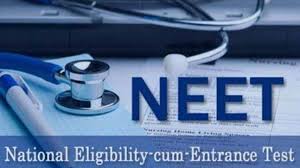
The Central Information Commission (CIC) in Ateet Bansal vs. CPIO, Central Board of Secondary Educatio, directed the Central Public Information Officer (CPIO) of Central Board of Secondary Education (CBSE) to provide information on the funds collected from the registration of NEET Examinations from the last 5 years and on the allocation of such money by the CBSE. 1. The number of applicants registers and attends the exams every year; 3. The allocation or the use of such funds collected from the registration of these exams. Aggrieved by the order, an appeal was filed in the Central Information Commission (CIC). Here, the appellant submitted that he requested the information in the public interest as enormous amounts of fees were being charged for the NEET Exams and that CBSE has not disclosed to the public how the amounts have been allocated. “The Appellant has merely sought to know the total amount collected by CBSE as registration fees in the last five years and the manner in which these funds were utilized, both of which does not reflect on any aspect of a fiduciary relationship even by a farthest stretch of imagination.” It said: Ankitha Subramanya | Research Intern | EduLegaL EduLegaL View:
SC Imposes Fine of Rs. 5 Crore on Medical College for Admissions in Violation of MCI Regulations
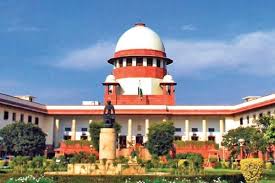
The Supreme Court in the case of Saraswati Educational Charitable Trust vs. Union of India pronounced its judgement and imposed a fine of Rs 5 crores on the petitioner (college) on the grounds of violation of the Admission Rules under the Medical Council of India (MCI) Regulations on Graduate Medical Education, 1997 (Regulations). The college filed a plea in the Supreme Court, challenging the MCI's 2017 notice ordering the college to discharge 132 of 150 students admitted to the MBBS course on account of the admissions violating the rules of the MCI Regulations on Graduate Medical Education, 1997 (Regulations). Additionally, 71 students of the same college also approached the court seeking continuation of their studies, conducting of examination etc. Earlier, the college challenged denial of renewal in the Supreme Court. The court then directed the respondent (Medical Council of India) to let the college participate in the counselling process. Accordingly, upon notice, 735 students applied and amongst them the MCI sent a list of 150 students to the petitioner (college). Out of 150, only 18 students secured their admissions to the college. The college, then, on its own accord within 4 hours, completed the filling of 132 seats for admission without waiting for the second list to be sent by the MCI. Owing to this, a notice was issued by the MCI to the college, asking it to discharge 132 students admitted in violation of the rules for admission. In response to this, the petitioner (college) filed the present plea. The petitioner (college) argued that there was a display of lethargy on part of the MCI in sending out the 2nd list as requested for, owing to which, the college on its own accord made admissions from the list of 735 eligible students. It also clarified that the admissions were made solely on merit and no students or candidates raised any objections for not being admitted according to their merit. All the admitted students are NEET qualified. As for the students, they pleaded ignorance about any irregularities or illegalities involved in the admission process as they were merely waiting for admission to the MBBS course and when given the chance to participate in the admission process, they did so. On behalf of the MCI, the rule of admission as per Regulation 5A of the MCI Regulations on Graduate Medical Education, 1997 (Regulations) reiterated that admission to the MBBS course shall be on the basis of the NEET merit list sent by Director General Medical Education. MCI argued that if the college found that the students were not enough to fill 150 vacancies, it should have approached the court to extend the deadline for admission and direct Director General Medical Education to allot more students. Also Read: Equivalence of subject, standard and scope mandatory for admission to MBSS not only academic qualification: SC The court agreed with this contention and said that the respondent (MCI) cannot be blamed to be lethargic or negligent as they acted swiftly in issuing the list of 735 eligible candidates. But the act of the college admitting 132 students within 4 hours was uncalled for and questionable. The court also rejected the submission of the college that they had no alternative except to go forward with the admission process on their own to adhere to the deadline. As regards the students who pleaded innocence, the court said: “The students who have secured admission cannot be said to be innocent as they knew fully well that their names were not recommended by the Director General Medical Education. We also do not agree that students and their parents were not aware that their admissions in College are contrary to the Regulations..” Expressing its opinion and direction as to what must be done with the students who secured admission in the process and even finished their 2nd year, the court directed: However, taking note of the fact that the students have completed the second year MBBS course, cancelling their admissions at this stage would not serve any useful purpose. The students who joined the College knowing fully well that their admissions are contrary to the Regulations are directed to do community service for a period of two years after completing their MBBS course.” This direction was given as the students in question already finished their second year and to save them from losing out on three academic years based on the facts and circumstances of the case at hand. The court then also directed the respondent (University) to conduct the second-year examinations for the students and declare their results for the same at the earliest. The court while concluding the judgment on the case, expressed: “Being aware of the fact that admissions cannot be made from students not allotted by the third Respondent, the College admitted 132 students on its own. Thereafter, the College permitted the students to continue their studies in spite of the direction by the Medical Council of India to discharge the students not being stayed. Intentional violation of the Regulations by the Petitioner-College while granting admission to 132 students in the first year MBBS course for the academic year 2017-2018 cannot be condoned. The Petitioner-College is directed to deposit an amount of Rupees Five Crores in the Registry of this Court within a period of 8 weeks from today. The Petitioner-College are directed not to recover the amount from the students in any manner whatsoever.” The petition was accordingly disposed off. EduLegaL | www.edulegal.org Read the Judgement: EduLegaL View: The Supreme Court in the case of Saraswati Educational Charitable Trust v. Union of India pronounced its judgement and imposed a fine of Rs. 5 Crore on the Petitioner-College on the grounds of violation of the Admission Rules under the Medical Council of India (MCI) Regulations on Graduate Medical Education, 1997 (Regulations).
AICTE Releases New Guidelines for Distance Education and Online Learning

February 2021, the Calcutta High Court, in an order, directed that benefits of reservation, age relaxation and fee concession be forthwith provided to transgender persons in the Joint CSIR NET Examinations.The Single-Judge Bench of Justice Sabyasachi Bhattacharyya held:“The right to life, it has been held time and again by various judgments of the Supreme Court and High Courts, includes the right to live with dignity. As such, non-grant of such reservation, age relaxation and fee concession to transgender persons in the Joint CSIR-UGC NET Examinations is unacceptable and patently violative of Articles 14 and 21 of the Constitution of India.”The Council of Scientific and Industrial Research National Eligibility Test — CSIR NET Exam — is conducted twice a year in June and December by the National Testing Agency (NTA) — an autonomous organization established by the Ministry of Human Resource Development (MHRD).The CSIR NET Exam is held for five subjects of science including; Chemical Science, Earth Science, Life Science, Physical Science and Mathematical Science. Candidates aspiring for Junior Research Fellowship (JRF) or aiming at becoming lecturers in Indian universities and colleges enroll and appear for the exam. Whereas, the UGC NET Exam is conducted for all subjects other than science.On 3rd November 2020, a writ petition was filed in the Calcutta High Court by Sumana Pramanik who holds a postgraduate degree in mathematics from the University of Kalyani, West Bengal and is the first transgender person in the State to be appointed at the Lok Adalat. Through the writ, the petitioner sought fee concession, in the CSIR NET Exam, owing to her poor financial conditions augmented especially during the COVID-19 pandemic times.The petitioner relied on a landmark Supreme Court judgement, National Legal Services Authority Vs. Union of India and others dated 15th April 2014, which affirmed that the fundamental rights granted under the Constitution of India apply to the transgender community and also grants them the right of self-identification of their gender. The court also directed the Central and State governments treat members of the transgender community as socially and educationally backward classes of citizens and provide reservations for their benefit in admissions to educational institutions and for government jobs.In the National Legal Services Authority Vs. Union of India and others, the Court had held:“Discrimination on the basis of sexual orientation or gender identity includes any discrimination, exclusion, restriction or preference, which has the effect of nullifying or transposing equality by the law or the equal protection of laws guaranteed under our Constitution, and hence we are inclined to give various directions to safeguard the constitutional rights of the members of the TG community.”Justice Sabyasachi Bhattacharyya observed that such benefits have been provided in the UGC NET Examinations, “which stands on more or less equal footing. He added:“It is palpably clear that there is no rhyme or reason for there being no reservation, age relaxation and fee concession for the transgender community in the Joint CSIR-UGC NET Examination.”In conclusion, the Calcutta High Court allowed the Mandamus writ petition and directed the rightful authority:“to immediately provide for reservation, age relaxation and fee concession for the category of transgenders, along with the other reserved categories, for the Joint CSIR-UGC NET Examinations at all levels.”14. Equality before LawThe State shall not deny to any person equality before the law or the equal protection of the laws within the territory of India.21. Protection of life and personal liberty.No person shall be deprived of his life or personal liberty except according to procedure established by law.Ankitha Subramanya | Research Intern | EduLegaLEduLegaL View:Calcutta High Court, in an order, directed that benefits of reservation, age relaxation and fee concession be forthwith provided to transgender persons in the Joint CSIR NET Examinations.
Webinar on Anti- Ragging Complaints - Inquiry Procedure and Compliance
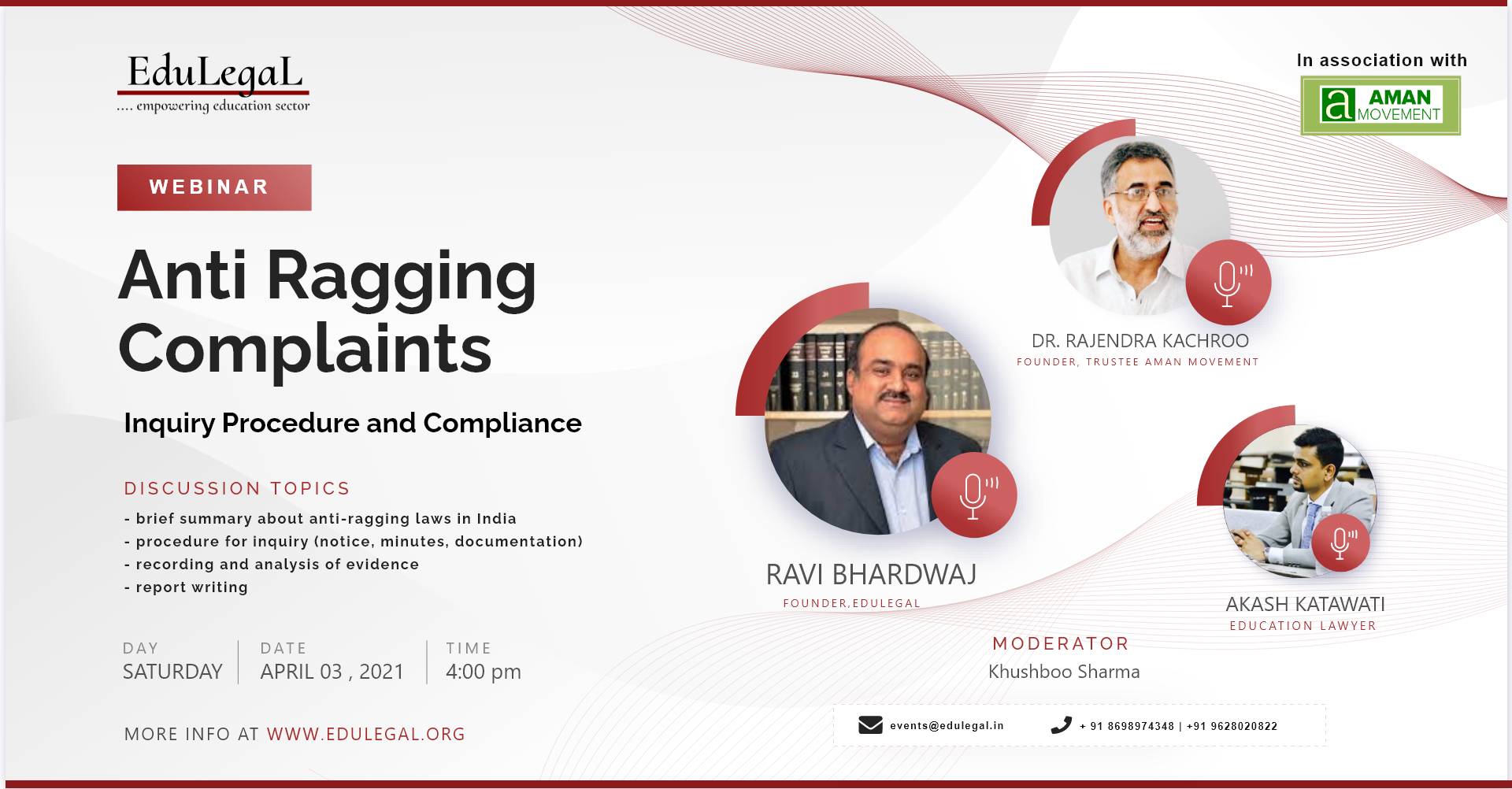
Feb 2021 the Supreme Court, passed an interim order, in a joint hearing of Special Leave Petitions (SLP’s) filed by eleven educational institutions, allowing private unaided schools in Rajasthan to collect 100% fees for the academic years 2019-20 and 2020-21, from 5thMarch 2021 to 5th August 2021, through 6 monthly installments. The fee amount would be the amount notified for the academic year 2019-20.It was clarified that the above-mentioned arrangement of payment of tuition fees for the academic years 2019-20 and 2020-21, is separate from and independent of the current fees payable for the academic year 2021-22The bench of Justice AM Khanwilkar and Justice Dinesh Maheshwari held:“The Management shall not debar any student from attending either online classes or physical classes on account of non-payment of fees, arrears/ outstanding fees including the installments, referred to above, and shall not withhold the results of the examinations of any student on that account.”The court added:“In respect of the ensuing Board examinations for classes X and XII (to be conducted in 2021) the school management shall not withhold the name of any student/ candidate on the ground of non-payment of fee/ arrears, if any, on obtaining undertaking of the concerned parent/ student.”Additionally, the Court further directed the Rajasthan Government to reimburse the expenses borne by private schools in teaching 25% students from Economically Weaker Sections (EWS) within one month, as per the Right to Education Act, 2009. This interim order has been made subject to the final order to be passed after the next hearing scheduled on 15th February 2021.The Apex Court, while taking note of the financial constraints of the parents in the paying of fees as per the interim order, said:“It will be open to those parents to approach the school concerned by an individual representation and the management of the school will consider such representation on a case-to-case basis sympathetically.”On 18th December 2020, the Rajasthan High Court upheld the State Government’s order and permitted private unaided Central Board of Secondary Education (CBSE) and Rajasthan Board of Secondary Education (RBSE) schools to collect 70% and 60% tuition fee respectively. Further, the court also allowed schools that had been conducting online classes and had not reopened, to collect 60 percent of tuition fee as “capacity-building fee”.Aggrieved by the Rajasthan High Court decision, several Special Leave Petitions were filed in the Supreme Court, against the High Court order on 7th January 2021 upon which the Apex Court stayed the Rajasthan High Court order.The matter is for hearing next on 15th February 2021 when the final order would be passed on the determination of school fees for the academic years 2019-20 and 2020-21.Ankitha Subramanya | Research Intern | EduLegaLEduLegaL View: Supreme Court, passed an interim order, in a joint hearing of Special Leave Petitions (SLP’s) filed by eleven educational institutions, allowing private unaided schools in Rajasthan to collect 100% fees for the academic years 2019-20 and 2020-21, from 5thMarch 2021 to 5th August 2021, through 6 monthly installments. The fee amount would be the amount notified for the academic year 2019-20.
Take Strong Measures to Become a "Ragging Free State": UGC to States
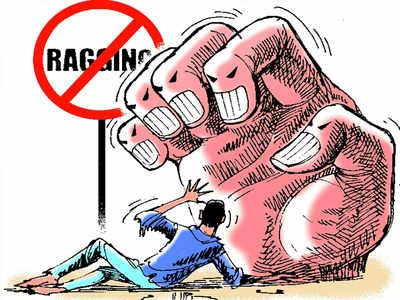
February 2021 the Supreme Court passed a landmark judgment in Vikash Kumar v. Union Public Service Commission and Ors. wherein the appellant had filed an appeal when his request for being provided with a scribe to write his Civil Services Examination was rejected. The bench comprising of Justice Indira Banerjee and Justice Sanjeev Khanna and presided by Justice D Y Chandrachud, opined: “Except in the specific statutory context where the norm of benchmark disability has been applied, it would be plainly contrary to both the text and intent of the enactment to deny the rights and entitlements which are recognized as inhering in persons with disabilities on the ground that they do not meet the threshold for a benchmark disability.” The appellant-student Vikash Kumar had approached the Union Public Service Commission requesting for a scribe since he suffered from a writer’s cramp. Medically, the condition that the student suffered is a disability variant of dysgraphia. The student completed MBBS degree in 2016 from JIPMER. In 2017, he appeared for Civil Services Examination wherein his request for a scribe was permitted. The appellant while filling up the examination form for the CSE 2017 had mentioned himself as a person with locomotor disability, to avail the help of a scribe, which was granted to him. However, in 2018, the Department of Personnel and Training through the UPSC issued a notice wherein certain rules pertaining to the conduct of the examination were laid down. The rules for all the aspiring candidates prescribed mandatory writing of their own papers and that the services of a scribe would not be provided to them. But a certain category of candidates were exempt from such rules, provided they were blind, or had a loco-motor disability or had cerebral palsy. The base of determining this exception was cases where “dominant (writing) is affected to the extent of slowing down the performance of function (minimum of 40% impairment)”. Only such candidates with the fulfilling the disability criteria could avail the help of a scribe, in addition to 20 extra minutes to complete the exam than the regular allotted time. Nevertheless, when the appellant filed his form for CSE 2018, and again mentioned himself as a person with a loco-motor disability to request for a scribe, the same was denied to him by the UPSC in March 2018. The reason for this rejection was cited as the appellant not meeting the criteria of a disabled person with a minimum impairment percentage of 40% in blindness or loco-motor disability or cerebral palsy. The appellant had also wished to appear for the Combined Medical Services Examination in 2017 for the post of a Medical Officer, which also comes under the canopy of the UPSC. For this, he needed a disability certificate and he approached the Medical Board of the Ram Manohar Lohiya Hospital for the same. The Board too rejected his application for the certificate, which thus led to the appellant challenging this rejection before the Central Administrative Tribunal. The appellant had moved the Tribunal challenging the rejection of his request for a scribe in 2018, following which the Tribunal had directed the UPSC to provide him with a scribe to help with his preliminary examination. When the results for the examination were declared in July 2018, the appellant’s results were withheld. The application of the appellant was then dismissed on the grounds of having no disability certificate from the Medical Board and not needing the help of a scribe to write his CSE in 2017 nor his MBBS graduation examinations. A writ petition was then filed before the High Court of Delhi which challenged the CSE Rules 2018. But the ruling division bench of the Delhi HC refused to interfere with the Tribunal’s Order since the appellant had not qualified for the CSE 2018. This order of the High Court was challenged in appeal before the Supreme Court. The Supreme Court considered the questions: Whether the Appellant suffers from a benchmark disability within the meaning of Section 2(r) and Section 2(zc) of the RPwD Act, 2016; and Whether he is a ‘person with disability’ under Section 2(s) of the RPwD Act, 2016 and the extent of the disability. To this, the All India Institute of Medical Sciences (AIIMS) investigated the health of the appellant and concluded in a report that – his Writer’s Cramp was a ‘chronic neurological condition’ and that although he does not have any benchmark disability, he did, in fact, fall into the category of a Person with Disability under the RPwD Act, 2016, with a disability percentage of 60% The contentions raised on behalf of the appellant condemned the CSE Rules, 2018 as they “violate Article 14 and Article 16(1) of the Constitution and the RPwD Act, 2016 as they provide for scribes only for candidates who are blind, those suffering from locomotor disability or cerebral palsy. In the CSE Rules 2018, applications are invited from all persons with disabilities and age relaxation is also provided to them, including for those suffering from learning disabilities. However, the provision of scribes is limited to a few candidates.” Referring to this, the SC bench said: “The concept of benchmark disabilities under the RPwD Act, 2016 has specifically been adopted in relation with the provisions of Chapter VI and Chapter VII. Chapter VI contains special provisions for persons with benchmark disabilities. Among those provisions is Section 31 (free education for children with benchmark disability), Section 32 (reservation in higher educational institutions), Section 33 (identification of posts for reservation), Section 34 (reservation), Section 36 (Special Employment Exchange) and Section 37 (Special Schemes and Development Programmes). Chapter VII contains special provisions for persons with benchmark disabilities in need of high support. Thus, the concept of benchmark disabilities has been adopted by the legislation bearing in mind specific provisions which are contained in the law for persons meeting this description.” The court further went on to emphasize the grave violation of the rights of a disabled person declaring: “Conflating the rights and entitlements which inhere in persons with disabilities with the notion of benchmark disabilities does dis-service to the salutary purpose underlying the enactment of the RPwD Act 2016. Worse still, to deny the rights and entitlements recognized for persons with disabilities on the ground that they do not fulfil a benchmark disability would be plainly ultra vires the RPwD Act 2016.” Commenting on the legality of the CSE Rules 2018, the court added: “A statutory concept which has been applied by Parliament in specific situations cannot be extended to others where the broader expression, persons with disability, is used statutorily. The guidelines which have been framed on 29 August 2018 can by no means be regarded as being exhaustive of the situations in which a scribe can be availed of by persons other than those who suffer from benchmark disabilities. The MSJE does not in its counter affidavit before this Court treat those guidelines as exhaustive of the circumstances in which a scribe can be provided for persons other than those having benchmark disabilities. This understanding of the MSJE is correct for the simple reason that the rights which emanate from provisions such as Section 3 extend to persons with disability as broadly defined by Section 2(s)." The court thus allowed the appeal of the appellant and set aside the earlier order of September 2018 of the Delhi High Court. Recognizing the thought there have been various instances of the violation of rights of disabled persons even with the RPwD Act, 2016 in place and that justice has been long-delayed and denied to such persons due to the various rules and regulations the court said: “There is a critical qualitative difference between the barriers faced by persons with disabilities and other marginalized groups. In order to enable persons with disabilities to lead a life of equal dignity and worth, it is not enough to mandate that discrimination against them is impermissible. That is necessary, but not sufficient. We must equally ensure, as a society, that we provide them the additional support and facilities that are necessary for them to offset the impact of their disability.” Justice D Y Chandrachud, on behalf of the bench further added: “Cases such as the present offer us an opportunity to make a meaningful contribution in the project of creating the RPwD generation in India. A generation of disabled people in India which regards as its birthright access to the full panoply of constitutional entitlements, robust statutory rights geared to meet their unique needs and conducive societal conditions needed for them to flourish and to truly become co-equal participants in all facets of life.” EduLegaL View: Supreme Court passed a landmark judgment in Vikash Kumar v. Union Public Service Commission and Ors. establishing benchmark disability is not a precondition to obtaining a scribe.
SC to Rajasthan Schools: Collect 100% Fee from March 2021 in 6 Monthly Installments
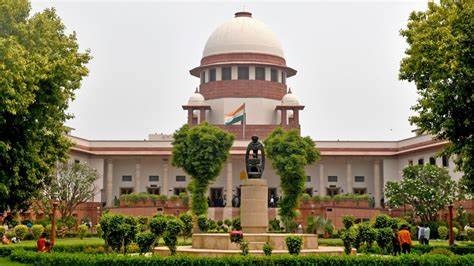
Take Strong Measures to Become a "Ragging Free State": UGC to StatesRagging a heinous crime that adversely affects the education system of the country and destroys promising young lives needs immediate attention and utmost priority to stop and uproot the menace from societyEducation News | EduLegaL The University Grants Commission (UGC) of India in its notice dated 19.03.2021 has directed states to adopt strong measures to implement the Anti Ragging Regulations and take stringent actions against those flouting the guidelines. The UGC has further instructed states to ensure that concerns pertaining to “Ragging” are addressed in a time-bound manner to make them a “Ragging Free State” with utmost dispatch.Additionally, the notice has reiterated states to mandatorily adhere to and implement the ‘UGC Regulations on Curbing the Menace of Ragging in Higher Educational Institutions, 2009’ framed pursuant to the judgment of the Hon’ble Supreme Court of India, and ensure that the guidelines are adopted, followed, and implemented by all universities and colleges.Prof. Rajnish Jain Secretary UGC, in his communication, has stated:, therefore, request you to take strong measures to implement the Anti Ragging Regulations in your state and take stringent action against those flouting the guidelines.Once again, may I request for your kind intervention in the matter to ensure that the concern is addressed in a time bound manner and your state become a "Ragging Free State" at the earliest.Measures Adopted by the UGC to Curb Ragging:To curb the menace of ragging, UGC has established a nationwide toll-free anti-ragging helpline <strong>1800-180-5522</strong> in 12 languages which can be accessed by students in distress due to ragging. It is also binding for all institutions to incorporate, in their prospectus, the directions of the government concerning prohibition and the consequences of ragging. UGC has been repeatedly and routinely issuing necessary advisories to all educational institutions, which are also made available on the UGC website.However, all these steps have not yielded complete and consequential results and, ragging remains yet to be completely eliminated from educational institutions. Therefore, the UGC has once again instructed states to take effective measures to eliminate this grave crime from society.Webinar on Anti- Ragging Complaints – Inquiry Procedure and ComplianceAs a socio-legal initiative aimed at creating awareness about procedure and compliance involved in inquiring into anti-ragging complaints, is organizing a Webinar on 3rd April 2021, encompassing aspects of 'Anti-Ragging Laws’, ‘Procedure to Inquire into Complaints’, ‘Compliance’ and ‘Report Writing'.Read the UGC Notice dated 19th March 2021 below:EduLegaL View:The University Grants Commission (UGC) of India has directed states to adopt strong measures to implement the Anti Ragging Regulations and take stringent actions against those flouting the guidelines. The UGC has further instructed states to ensure that concerns pertaining to “Ragging” are addressed in a time-bound manner to make them a “Ragging Free State” with utmost dispatch.
Rajasthan HC: Rustication and Cancellation of Admission of Students Involved in Ragging Justified

26th February 2010, the Jaipur Bench of the High Court of Rajasthan in Manmohan Machra and Anr. v. The University of Rajasthan and Anr., upheld the decision of the Anti-Ragging Committee and dismissed the contentions of the petitioners against the University.Justice R.S. Chauhan while passing the judgment said,“There has been a cancerous growth of ragging in the educational institutions across the State. The menace of ragging has claimed the lives of many young men, and has psychologically destroyed others. It is an act which needs to be dealt with by the law.”The petitioners were 3rd-year students in the B.Sc. stream at the Maharaja College, University of Rajasthan. Criminal cases were filed, FIR’s were registered against them and they were sent a letter informing them of their rustication from the college. A few days later, they were sent another letter informing them about the cancellation of their admissions upon the investigation by the Anti-Ragging Committee of the college.Aggrieved by these orders of the College, the petitioners approached the High Court. They argued that the action was not justified as the State of Rajasthan had no exclusive laws against the offense of ragging and the action of rusticating and canceling the admissions of the petitioners was arbitrary where they were not given an opportunity to be heard thus violating principles of natural justice.The respondents contended that whether or not the criminal cases were false or genuine could not be decided in its writ jurisdiction by the Court. It was something that needed to be scrutinized and tried by the Trial Court. They further contended that although the State of Rajasthan had no anti-ragging Act, Ordinance 88 of the University of Rajasthan permits it to take actions such as rustication and cancellation of admission of a student.The respondents also made known before the Court the fact that the petitioners had not in fact approached the Court with clean hands and that some facts were hidden from the Court by the petitioners. Some of those facts were that the petitioners were in fact given an opportunity to be heard before the anti-ragging committee. After much investigation and questioning, it was concluded that the petitioners had indulged in several undisciplined activities on various occasions. Following this, the decision to rusticate them and cancel their admissions was taken.The High Court after listening to the arguments expressed its views on the duty of the educational institutions in such matters saying:“Educational institutions are temples of learning. In educational institutions, students are not only educated, but they also learn about life in general. In the temples of learning, sanctity, discipline, decorum, and serenity have to be maintained. Students are expected to excel in their studies and to perform well in their extra-curricular activities. They are expected to train and discipline their mind and body. No educational institution can permit its students to be rowdy, to be undisciplined, and to be uncouth.” The Court reading the provisions under Ordinance 88 of the University of Rajasthan acknowledged the right of the respondents to act by the power conferred upon them by virtue of Ordinance 88 and added: “The power has to be exercised in a fair and reasonable manner and not in a malicious, whimsical, or capricious manner. Thus, the contention raised by the learned counsel for the petitioners that since there is no law against anti-ragging, the respondents are not empowered to rusticate and to cancel the petitioners' admissions, the said contention is unacceptable”.The Court additionally justified the decision of the Anti-Ragging Committee since the petitioners had not approached the Court with clean hands and had a history of indulging in undisciplined actions. Thus, their contention of the decision of the University being in violation of the principles of natural justice was dismissed.In conclusion of the judgment, the Court found the writ petition devoid of merit thus dismissed it while stating,“While other states such as Maharashtra, Tamil Nadu, Kerala, and Karnataka have enacted laws against ragging, the State of Rajasthan has yet to do so. Therefore, the Government is requested to consider the feasibility of enacting an Anti-Ragging Act for the State. A copy of this judgment shall be sent forthwith to the Chief Secretary, Home Secretary, and to the Hon'ble Law Minister for their due consideration of the recommendation made by this Court.” | Research Intern | EduLegaLWebinar on Anti- Ragging Complaints – Inquiry Procedure and ComplianceAs a socio-legal initiative aimed at creating awareness about procedure and compliance involved in inquiring into anti-ragging complaints, EduLegaL in association with Aman Movement</a> is organizing a Webinar on 3rd April 2021, encompassing aspects of 'Anti-Ragging Laws’, ‘Procedure to Inquire into Complaints’, EduLegaL View:The Jaipur Bench of the High Court of Rajasthan in Manmohan Machra and Anr. v. The University of Rajasthan and Anr.,upheld the decision of the Anti-Ragging Committee and dismissed the contentions of the petitioners against the University.
Right to Higher Education Not Fundamental Right But Affirmative State Obligation: SC

9th April 2021, the Supreme Court in Farzana Batool vs Union of India and Others— CWP No. 364 of 2021 — and Mohammad Mehdi Waziri vs Union of India — CWP no. 375 of 2021 — held that although the right to pursue higher (professional) education is not a fundamental right under the Constitution, the Government has an obligation to facilitate access to education, at all levels, while cautioning that the Government should not consider their responsibility as “generosity”.The Supreme Court was hearing 2 writ petitions filed by Ms. Farzana Batool and Mr. Mohammad Mehdi Waziri under Article 32 of the Constitution of India seeking directions to facilitate their admission to Lady Hardinge Medical College (LHMC) and Maulana Azad Medical College (MAMC) respectively and enable them to pursue an MBBS degree. The students, despite being nominated by the Administration of the Union Territory (UT) of Ladakh and in adherence to the terms of the seats notified by the Union Government from the central pool, were denied admission.The petitioner-students from the UT of Ladakh, strongly contended that denial of admission further to the nomination was a clear violation of their fundamental right to pursue professional education.While dealing with the cause of the petitioners, the Supreme Court observed that access to education, albeit at the professional level is an important issue, and emphasized the importance of creating an enabling environment to make it possible for students such as the petitioners to pursue professional education.The Supreme Court further substantiated that accessibility of education assumes far greater importance for students whose background by virtue of such characteristics as caste, class, gender, religion, disability, and geographical region imposes formidable obstacles on their path to accessing quality education.Relying on the notes of the Committee on Economic, Social and Cultural Rights (ICESCR Committee) and the Universal Declaration of Human Rights (UDHR), the Supreme Court pointed out that “accessibility” is one of the fundamental features in any education ecosystem, which applies to all levels of education. It was further clarified that ‘accessibility’ in terms of ‘education would mean ‘“accessible to allon the basis of merit” and the need to take affirmative steps to make sure that “financial constraints do not come in the way of accessing education”.The Supreme Court held:While the right to pursue higher (professional) education has not been spelt out as a fundamental right in Part III of the Constitution, it bears emphasis that access to professional education is not a governmental largesse. Instead, the State has an affirmative obligation to facilitate access to education, at all levels.In conclusion, the Supreme Court directed that the petitioners be admitted immediately at LHMC and MAMC as per the nomination and ensure that the admission process is completed within a week from the date of the order. Additionally considering the similar dilemma of the 7 other students who had been nominated and allocated the Central Pool seats as per the notification issued by the Ladakh UT Administration dated 19th February 2021, the court directed they also be granted admissions to the respective nominated institutions.Ankitha Subramanya | Research Intern | EduLegaL Swapna Iyer| Legal Editor | EduLegaLEduLegaL View:The Supreme Court of India has upheld the cause of justice in the above-discussed case, but I fail to understand why the ‘Right to Higher Education' is still not judicially declared as Fundamental Right. I do not see any imminent constraints particularly when ‘education' has been regarded as a basic 'human right’, across global levels. To not consider ‘Right to Higher Education as a fundamental right, I believe, is to not giving full meaning to the ideal of ‘education as a basic human right’.In any case, ‘elementary education’ is a fundamental right in India, so it should be natural that this right is extended and continued so as to assign full meaning to the fundamental right of elementary education. Breaking the ‘chain’ at the elementary level defeats the right of elementary education as a ‘fundamental right’.Argument Continues!Ravi Bhardwaj | mail@edulegal.in | www.edulegal.orgEduLegaL View: The Supreme Court of India has held that even though the right to pursue higher (professional) education is not a fundamental right under the Constitution, the Government has an obligation to facilitate access to education, at all levels, while cautioning that the Government should not consider their responsibility as “generosity”..
UGC Invites Applications for Fulbright Fellowships for 2022-23: Notification

7th April 2021,the Ministry of Education through UGC issued a public notice inviting applications for Fulbright Fellowships for Indian Citizens.Fulbright Fellowships is an initiative of the United States India Educational Foundation (USIEF) and aims at offering the benefits of Fulbright-Nehru, Fulbright-Kalam, and other similar Fellowships to eligible Indian citizens.Currently, USIEF is offering about 115 Fulbright-Nehru Fellowships. Competition for Fulbright-Kalam Climate Fellowships has also been announced.Fellowships aspirants may apply on the official website of the USIEF by May 17, 2021, at https://usief.org.in/Fellowships/Fellowships-for-Indian-Citizens.aspxMore details about the different Fulbright Fellowship programs are given on the official website where interested candidates may check their eligibility and the various benefits that the programs offer. The main focus for the selection of candidates for the USIEF would be those who work on projects relevant to India as well as the US. Selecting individuals who would make for good cultural ambassadors is a priority according to the USIEF.EduLegaL View: Ministry of Education through UGC issued a public notice inviting applications for Fulbright Fellowships for Indian Citizens.
BSE Odisha to Ensure Equality in Conduct of Third Language Subject Examinations: Orissa High Court
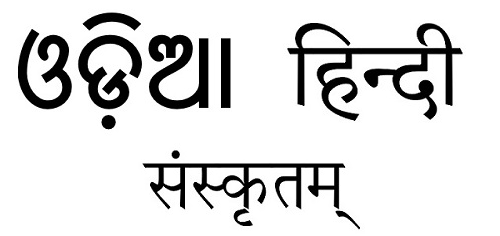
15th April 2021 the Orissa High Court in Hindi Teachers Association vs State and ors. —W.P. (C) No.13221 of 2013 — directed the Board of Secondary Education (BSE), Odisha to consider a resolution plea to mandate students opting for Sanskrit to write the Sanskrit paper in Devanagari script and Sanskrit language instead of Odia script and Odia language.The Board of Secondary Education (BSE), Odisha, grants extra advantage to students who have opted for Sanskrit as their 3rdlanguage while allowing them to write their paper in Odia script and language which is also their first language — Mother Tongue. However, students opting for Hindi were required to write the Hindi paper in the Dev nagiri script and Hindi language.The petitioner, Hindi Teachers’ Association, Odisha, filed a representation before the BSE citing the discrimination. Failing response, subsequently, on 17th June 2013, a writ petition was filed before the Orissa High Court seeking :resolution for writing the Sanskrit paper in Devanagari script and Sanskrit language instead of Oriya script and Oriya language, so that no extra advantage is gained by the students opting for Sanskrit over the student opting for Hindi.A Single Judge Bench of Justice Dr. B R Sarangi, studying the matter directed the Board of Secondary Education, Odisha to:consider the petitioner’s representation and to pass appropriate order in accordance with law within a period of three months from the date of production of certified/ authenticated copy of this order by the petitioner”.The Court also stated that given the COVID-19 pandemic situation, a soft copy of the order would be considered at par with a certified copy.Ankitha Subramanya | Research Intern | EduLegaLEduLegaL View: Orissa High Court in Hindi Teachers Association vs State and ors. directed the Board of Secondary Education (BSE), Odisha to consider a resolution plea to mandate students opting for Sanskrit to write the Sanskrit paper in Devanagari script and Sanskrit language instead of Odia script and Odia language.
CIC Reiterates Right of Candidates to Examine Their Answer Sheets
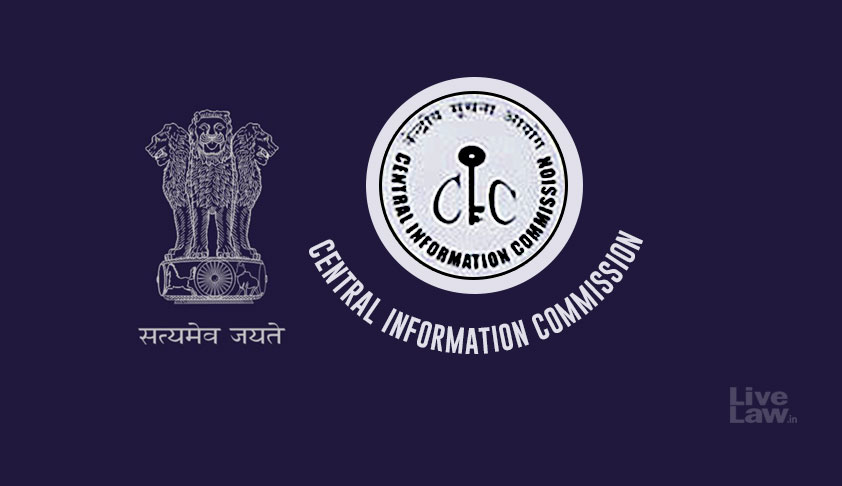
4th May 2021, the Orissa High Court, issued a common order while hearing over 170 writ petitions in the School Managing Committee of Amaramunda Govt. Primary School, Amaramunda vs State of Odisha & Others – CWP no. 27401 of 2020 – and 6 other cases set aside a notification dated 11th March 2020 directing consolidation/ merger of school having lower roll strength (Satellite School) with the school having higher roll strength (Lead School) issued by the School and Mass Education Department, Odisha Government.The Single Judge Bench of Justice Dr. B R Sarangi observed:Instead of finding the reasons for decreasing roll strength merger of school will not serve the purpose. It is just like without finding the cause of disease treatment has been started.”11th March 2020 the School & Mass Education Department, Odisha Government issued a notification in pursuance of the Department’s policy of rationalization and consolidation of schools. It set out the consolidation of various types of schools including high schools with primary and upper primary schools. It also expressly laid down that a primary school having an enrolment of less than 40 in respect of non-scheduled area and less than 25 in respect of scheduled area can be consolidated with a lead school while an upper primary school having enrolment less than 50 in respect of non-scheduled area and less than 40 in respect of scheduled area can be consolidated with a lead school.Management of schools, under Article 226 and Article 227 of the Constitution, filed writ petitions before the Orissa High Court, seeking to quash the impugned notification.Examining the notification, the Court expressed that the impugned notification was contrary to Article 21A of the Constitution of India that entitles, every child between the age of 6-14, the fundamental right to free and compulsory education.The Court also took notice of the fact that no minimum strength for primary school, roll strength of the upper primary school, merger/consolidation of primary/upper primary schools with high schools was prescribed under the Right of Children to Free and Compulsory Education (RTE) Act, 2009. Clearly, the notification fixing the minimum roll strength under the Odisha Right of Children to Free and Compulsory Education Rules, 2010, was contrary to the statute.The Court held: “…when the very purport of the Act, 2009 and Rules, 2010 is to provide at least one school within a walking distance of one km. of the neighbourhood, in that case, the State Government cannot and could not take steps for abolition of schools which are already there and catering to the needs of the local people.”In view of the observations, the Orissa High Court allowed the writ petitions, set aside the impugned notification while stating: “cannot sustain in the eye of law ”and directed the parties to “restore back the position of the schools in question, as before, and provide necessary infrastructure for smooth running of the same”.Ankitha Subramanya | Research Intern | EduLegaL EduLegaL View: Orissa High Court set aside a notification dated 11th March 2020 directing consolidation/ merger of school having lower roll strength (Satellite School) with the school having higher roll strength (Lead School) issued by the School and Mass Education Department, Odisha Government.
Orissa High Court Dismisses Notification Directing Merger of Schools on Grounds of Less Enrolment of Students
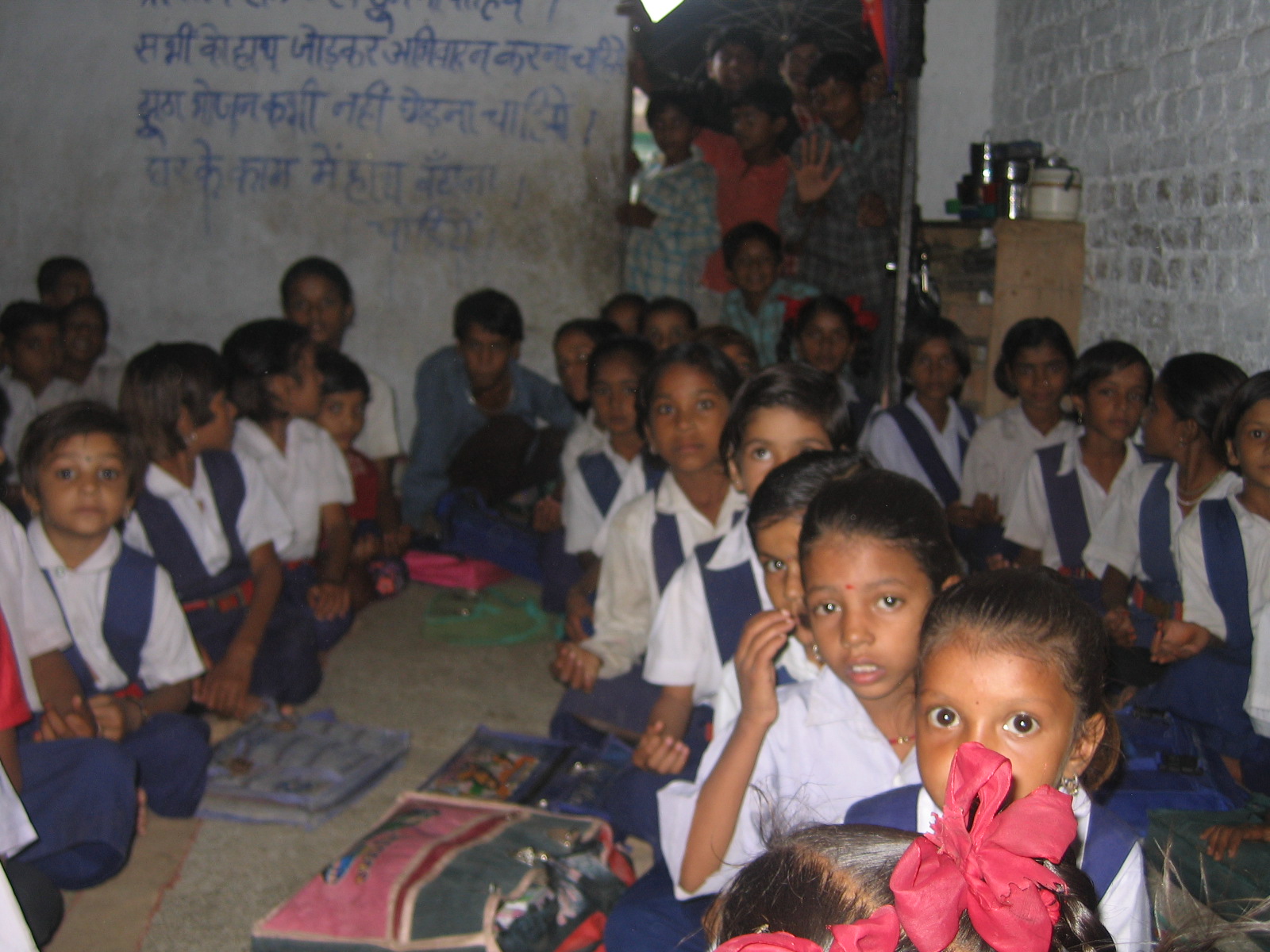
13th May 2021 the Jharkhand High Court, in Sunita Kumari vs. State of Jharkhand and Ors. –CWP no. 4192 of 2017 – and nine other cases, upheld Clause 6 of the Human Resource Development (HRD) Department, Jharkhand Government Resolution dated 20 May 2004 that mandates candidate’s minimum age to be 18 years for admission eligibility in training colleges for all courses including B.Ed, C.P.Ed, PTT, among others.The Single Judge Bench of Justice Anubha Rawat Choudhary observed: “…in the matter of fixation of any cut-off date regarding the age the legislature has very wide latitude unless it is found to be suffering from total lack of application of mind. This is over and above the fact that in the matter of dealing with the gamut of admission to educational institution, the role of the State is not excluded totally rather a great latitude has been conferred to the State by the Constitution itself to take decision depending upon the local conditions and the requirement of local people while enacting the law”.The petitioner students were admitted to the Radha Govind Primary Teachers Training College for the academic session 2011-13 onwards for a diploma course in primary teachers training despite their age being less than 18 years at the time of admission. Owing to a contravention of the said clause, the petitioners barred from filling the registration forms for the examination scheduled to be held by the Jharkhand Academic Council.Aggrieved, the petitioners filed writ petitions before the Jharkhand High Court challenging the said clause contending that the impugned clause is violative of Article 14 of the Constitution and is also in contravention of the National Council for Teachers Education Act (NCTE), 1993.The Court emphasized that fixation of minimum age is “essentially a matter of policy of the State” and since the NCTE 1993 had not prescribed any age criteria, the Jharkhand Government exercised its power under Entry 24, List III of the Constitution in prescribing minimum age for admission to Diploma in Elementary Education. The Court additionally observed that such fixation of age is based on intelligible differentia and is therefore not violative of Article 14 of the Constitution.The Court stated: “…the State has the competence to provide for the minimum age under the NCTE Regulation dated 18.06.2002 and also independent of it under entry 25 List III of VIIth schedule to the Constitution of India. The NCTE Act and the Regulations framed thereunder do not occupy the field of prescribing minimum age for admission in Diploma in Primary Teachers Training Course and therefore there is no question of any repugnancy between the impugned Clause 6 of Resolution No.1382 dated 20.05.2004 issued by the State Government, so far it relates to admission to the Diploma in Elementary education, and NCTE Act, 1993 and the regulations framed thereunder.”The petitioners' contention stood quashed.Ankitha Subramanya</a> | Research Intern | EduLegaL EduLegaL View: Jharkhand High Court upholds minimum age criteria for admission in diploma in the primary teachers training course; says the criteria is of intelligible differentia and not violative of Article 14
Courts to Not Manage Affairs of Private Universities: Chhattisgarh HC

Supreme Court Restores CIT Order Cancelling Registration of Trust for Receiving Bogus DonationsEducation News | EduLegaL | 2nd August 2021, the Supreme Court in Commissioner of Income Tax (Exemptions), Kolkata vs Batanagar Education and Research Trust – CA no. 4451 of 2021 – set aside the Calcutta High Court judgment dated 9th October 2018 and restored the order dated 25th June 2016 passed by the Commissioner of Income Tax (Exemption) (CIT) cancelling the registration of the respondent Trust for receiving bogus donations.The court held:The High Court completely erred in entertaining the appeal under Section 260A of the Act. It did not even attempt to deal with the answers to the questions as aforesaid and whether the conclusions drawn by the CIT and the Tribunal were in any way incorrect or invalid.In 2010, the respondent, Batanagar Education and Research Trust was registered as a Trust in accordance with the procedure enumerated under section 12AA and was also approved under section 80G(vi) of the Income Tax Act, 1961. The Act provides a deduction with respect to donations made to such approved Trusts (in favour of the assessee i.e., the one making donations).While conducting a survey on M/s. School of Human Genetics & Population Health under the Act, it was found that the respondent Trust received bogus corpus donations from the said entity and also from other entities. With respect to the same, a show-cause notice was issued and then a questionnaire was communicated which was answered by the Managing Trustee of the respondent Trust, Shri Rabindranath Lahiri.Thereafter, by an order dated 25th June 2016, the CIT cancelled the registration of the respondent Trust with effect from 1st April 2012. Further, the approval granted under section 80G(vi) of the Act was also cancelled.Aggrieved, the respondent Trust filed an appeal before the Income Tax Appellate Tribunal, which was dismissed. Later, the respondent approached the Calcutta High Court. By an order dated 9th October 2018, the court held that the tax authorities failed to prove that the respondent was involved in any illegal, immoral or irregular activity of the donors and set aside the CIT order cancelling the registration of the respondent Trust.Therefore, the appellant, CIT filed the present appeal challenging the decision of the Calcutta High Court.After hearing the parties, the Division Bench of Justice Uday Umesh Lalit and Justice Ajay Rastogi observed:The answers given to the questionnaire by the Managing Trustee of the Trust show the extent of misuse of the status enjoyed by the Trust by virtue of registration under Section 12AA of the ActThe court held:These answers also show that donations were received by way of cheques out of which substantial money was ploughed back or returned to the donors in cash. The facts thus clearly show that those were bogus donations and that the registration conferred upon it under Sections 12AA and 80G of the Act was completely being misused by the Trust. An entity which is misusing the status conferred upon it by Section 12AA of the Act is not entitled to retain and enjoy said status. The authorities were therefore, right and justified in cancelling the registration under Sections 12AA and 80G of the Act.In conclusion, the Supreme Court allowed the appeal, set aside the Calcutta High Court judgment dated 9th October 2018 and restored the order dated 25th June 2016 passed by the CIT cancelling the registration of the respondent Trust.Ankitha Subramanya| EduLegaLEduLegaL View: Supreme Court in Commissioner of Income Tax (Exemptions), Kolkata vs Batanagar Education and Research Trust – CA no. 4451 of 2021 – set aside the Calcutta High Court judgment dated 9th October 2018 and restored the order dated 25th June 2016 passed by the Commissioner of Income Tax (Exemption) (CIT) cancelling the registration of the respondent Trust for receiving bogus donations.
Conditions Stipulated in the Prospectus for Admission Must Be Fulfilled: Orissa HC

Disclosure of Answer Script of Competitive Examinations Detrimental: CICThe Central Information Commission (CIC) in Potla Sai Sushma vs Institute of Chartered Accountant held that for a specialized exam disclosure of the question papers and answer key would defeat the purpose of conducting such examination.The Commission held:because of the specialized nature of examination, the numbers of multiple choice questions are limited. The candidates are not allowed to copy either the questions or the answers on the rough sheets provided which are collected back after the exam. Disclosure of any information which diminishes the rigour of the screening process of selection and/or training of financial experts will naturally have a direct detrimental impact on the quality of CAs practising in the country. Thus disclosure of information as sought by the appellant in these cases will open floodgates for all similarly situated persons to secure information which would be prejudicial to the larger public interest. Therefore, in a specialized, multiple choice examination, the disclosure of question papers would defeat the larger purpose of such examination. Hence the information cannot be disclosed.The appellant had filed an application seeking information on the question-and-answer key for the Chartered Accountancy (CA) examination held in May 2019.Initially she petitioned before the Central Public Information Officer (CPIO).25.06.2021, the CPIO responded that he cannot furnish the details since the request it is beyond the scope of section 8(1)(d) of RTI Act which says:information including commercial confidence, trade secrets or intellectual property, the disclosure of which would harm the competitive position of a third party, unless the competent authority is satisfied that larger public interest warrants the disclosure of such information.Aggrieved by the reply of the CPIO, she filed an appeal before the First Appellant Authority (FAA). The FAA confirmed the CPIO’s replyFurther aggrieved, she appealed to the Commission and submitted that the examination contained 30% multiple choice questions (MCQs) and 70% descriptive questions. Therefore, she claims that she is entitled to access the MCQs question as well as answer key.The FAA in its orders had explained that MCQ papers are framed by subject-experts and the Institute has a limited question bank and therefore, exemption u/s 8(1)(d) of the RTI Act was claimed by the FAA.CPIO clarified the rationale behind non-disclosure of the such answer-script to any candidate is that the MCQ section of the examination contains questions to check the candidates conceptual and analytical memory, which differs from one to another. If those question are made available to the public and published the possibility of the following years aspirants becoming aware of the questions is most likely and therefore inadvisable.In summary, the Commission, examining the records of the case upheld the decision of FAA stating that CA examination is a highly specialized and competitive examination wherein the candidates are asked to deposit back even the rough pages they have used during the examination, and disclosure of question-and-answer key would invalidate the selection process and have a consequential effect on the training of financial experts practising in the country.Rasmita Behera | Research Intern | EduLegaLEduLegaL View: The Central Information Commission (CIC) in Potla Sai Sushma vs Institute of Chartered Accountant held that for a specialized exam disclosure of the question papers and answer key would defeat the purpose of conducting such examination.
Ministry of Education has requested to take the following action in order to sensitize the issue related to maintenance of safe working environment as per "Sexual Harassment ol Women at workplace (Prevention, Prohibition and Redressal) Act,2013
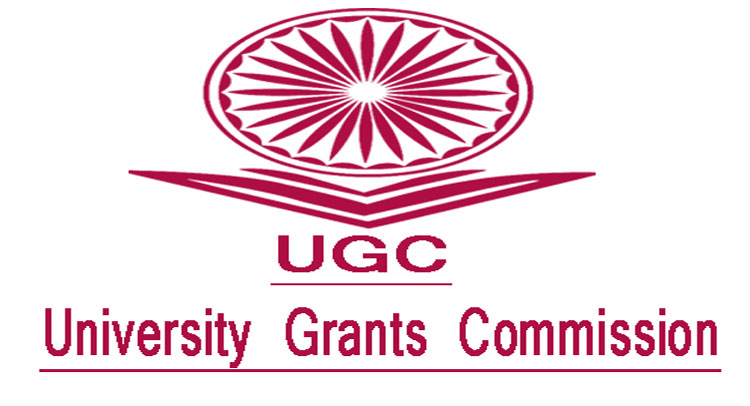
The UGC has reiterated the requirement to curb Sexual Harassment in Educational Institutions and towards this the University Grants Commission has also notified University Grants Commission (Prevention,Prohibition and redressal of sexual harassment of women employees and students in higher educational institutions) Regulations, 2015.The Ministry of Education has requested to take action as per its letter dated 05 June 2023 in order to sensitize the issue related to maintenance of safe working environment as per "Sexual Harassment of Women at workplace (Prevention, Prohibition and Redressal) Act,2013"s and submit online compliance of Gender Audit on SAKSHAM portal i.e.( www.saksham.ac.in) for the year of 2022-23 and also inform the same to your affiliated colleges.
Discontinuation of M.Phil Degree
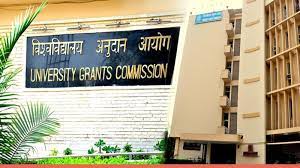
Discontinuation of the M .Phil Degree The University Grants Commission had declared that M.Phil Degree will be discontinued in pursuance to the Regulation 14 of the UGC (Minimum Standards and Procedures for Award of Ph.D Degree) Regulations 2022. UGC has observed that numerous institutions are still inviting fresh applications for the academic year 2023-24. In response, the Commission issued an official notification dated 26 December 2023 cautioning students that the M.Phil program is no longer considered a valid degree. UGC urged university authorities to promptly cease admissions to MPhil programs. Previously, the MPhil degree was a postgraduate research degree granted by universities.






